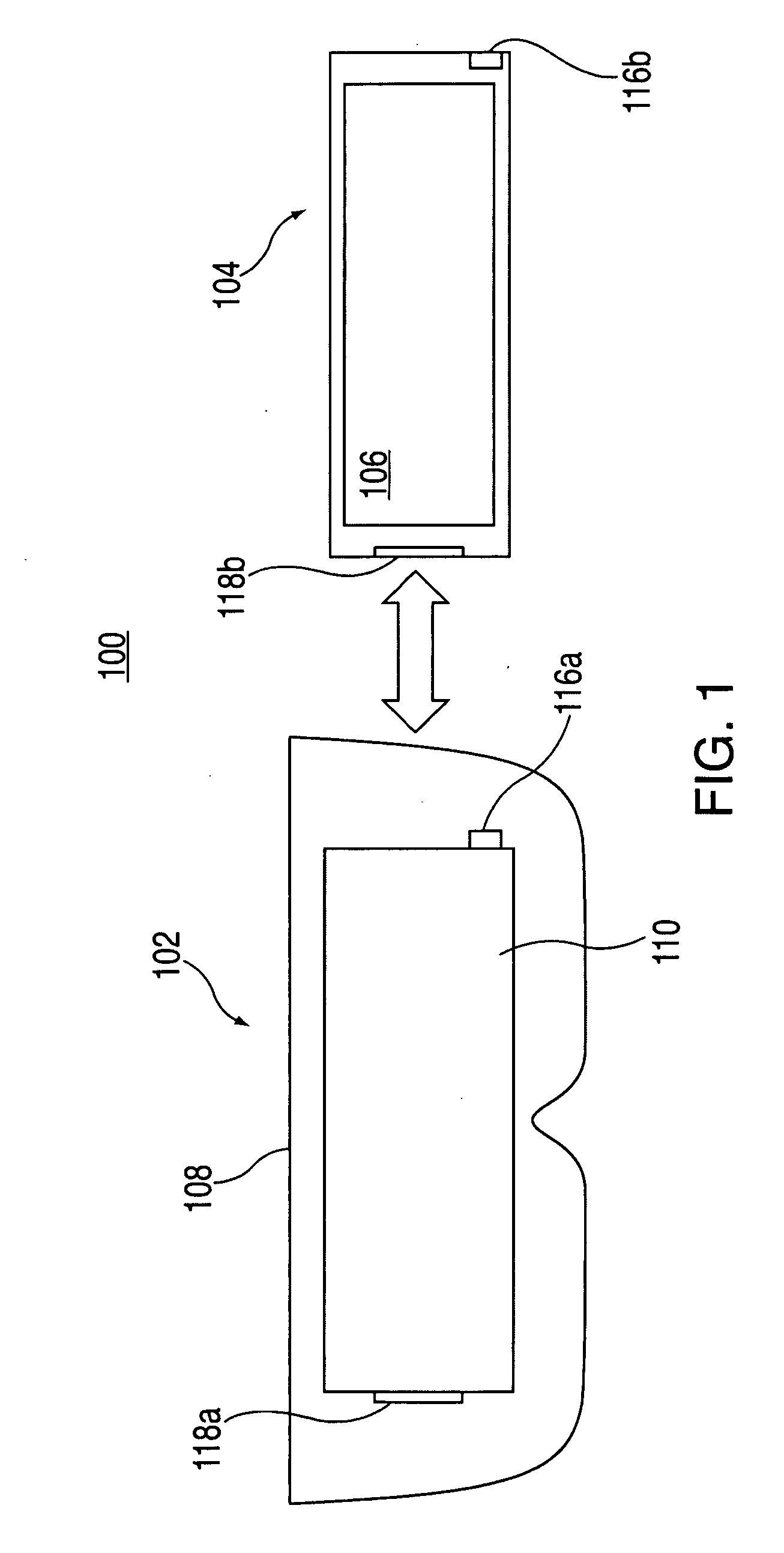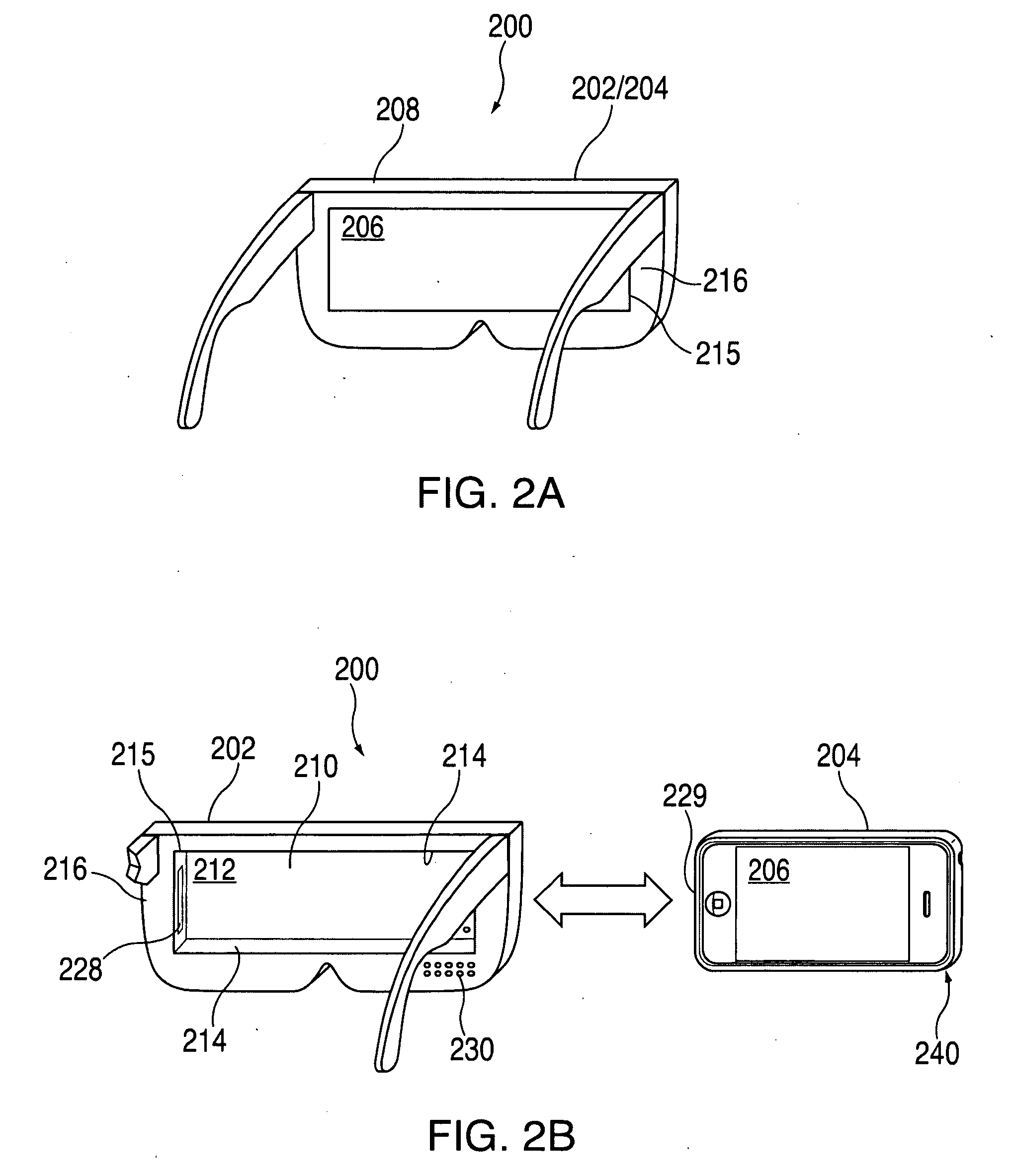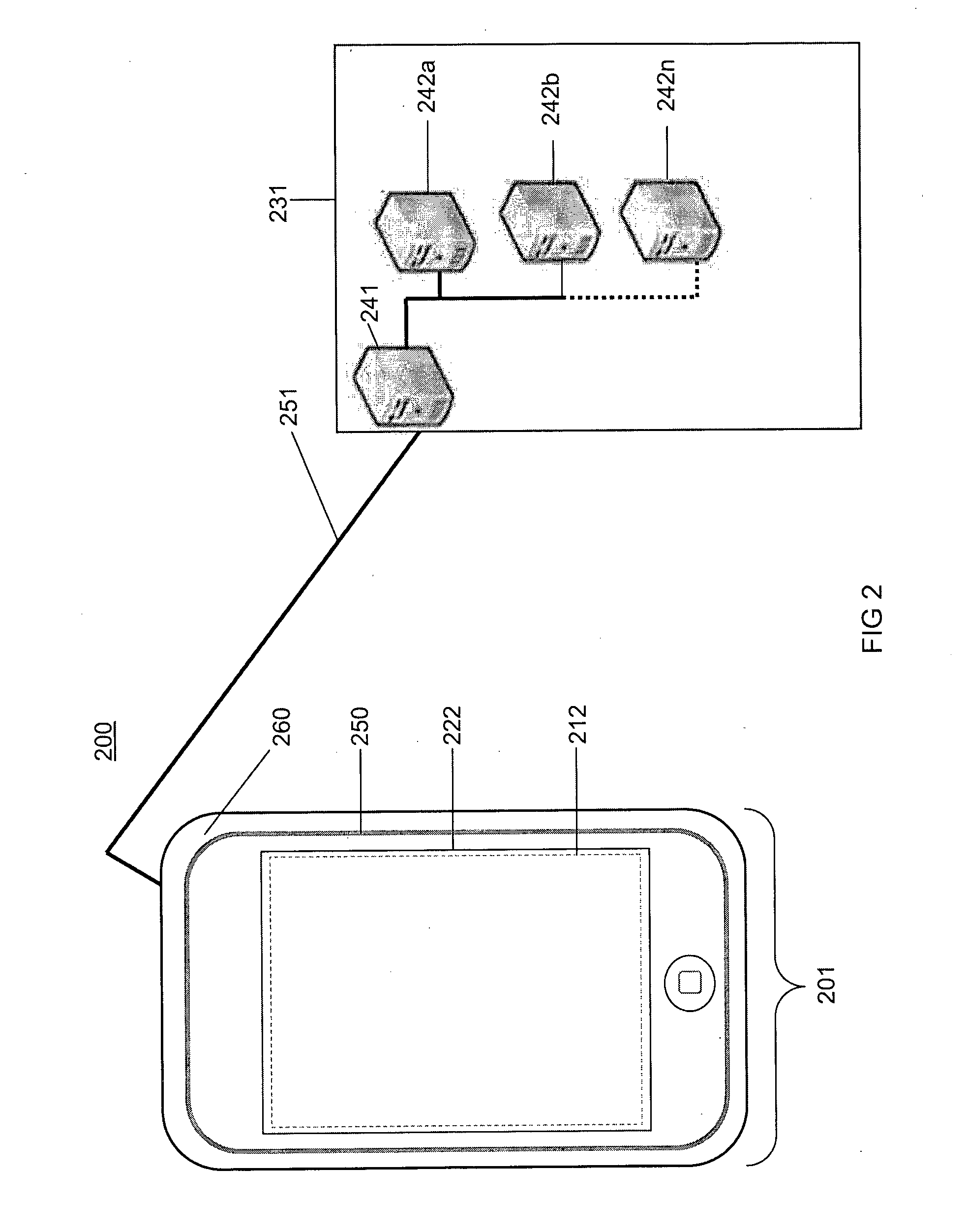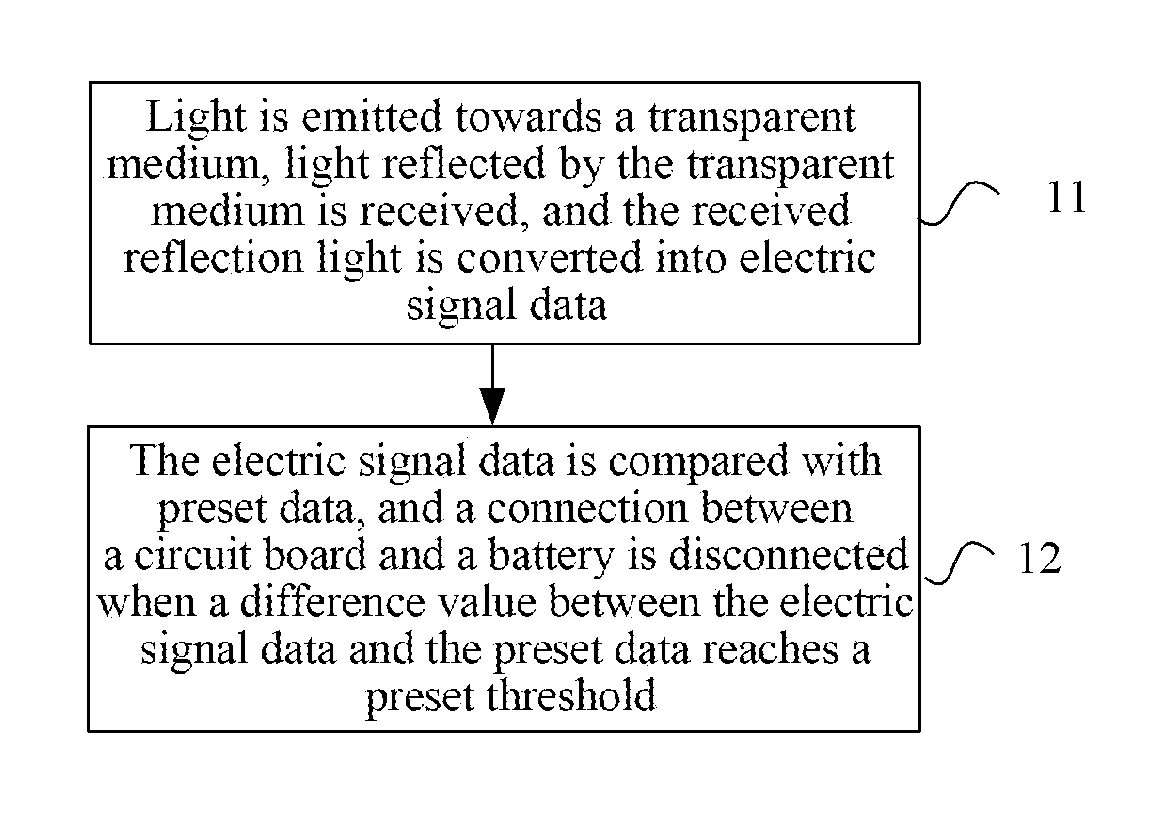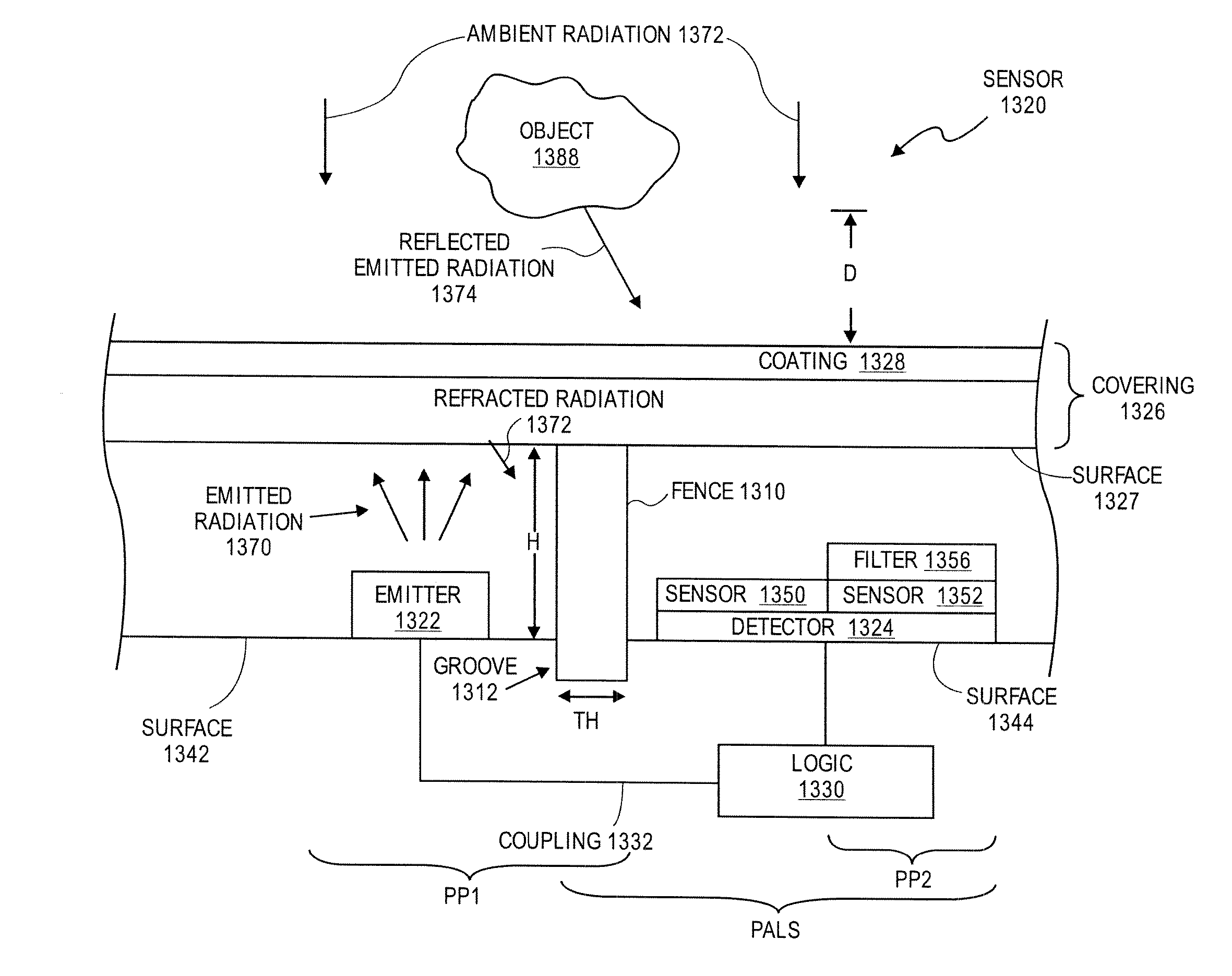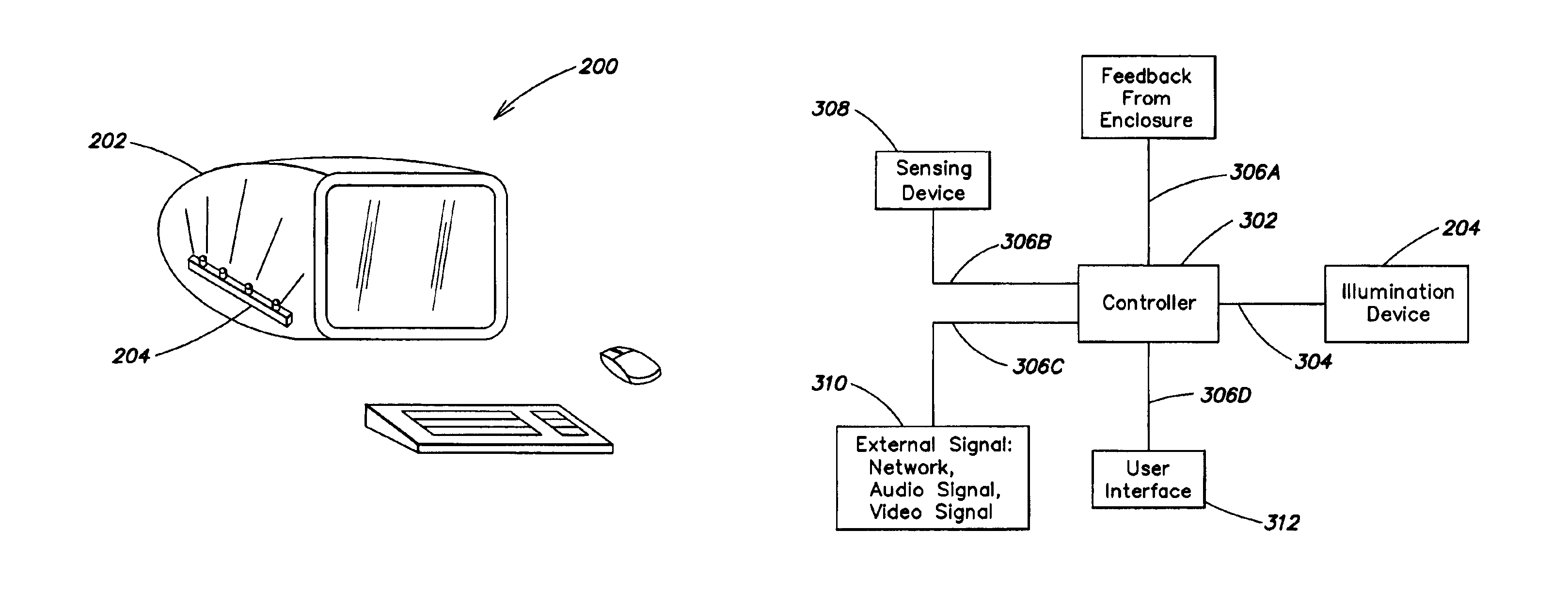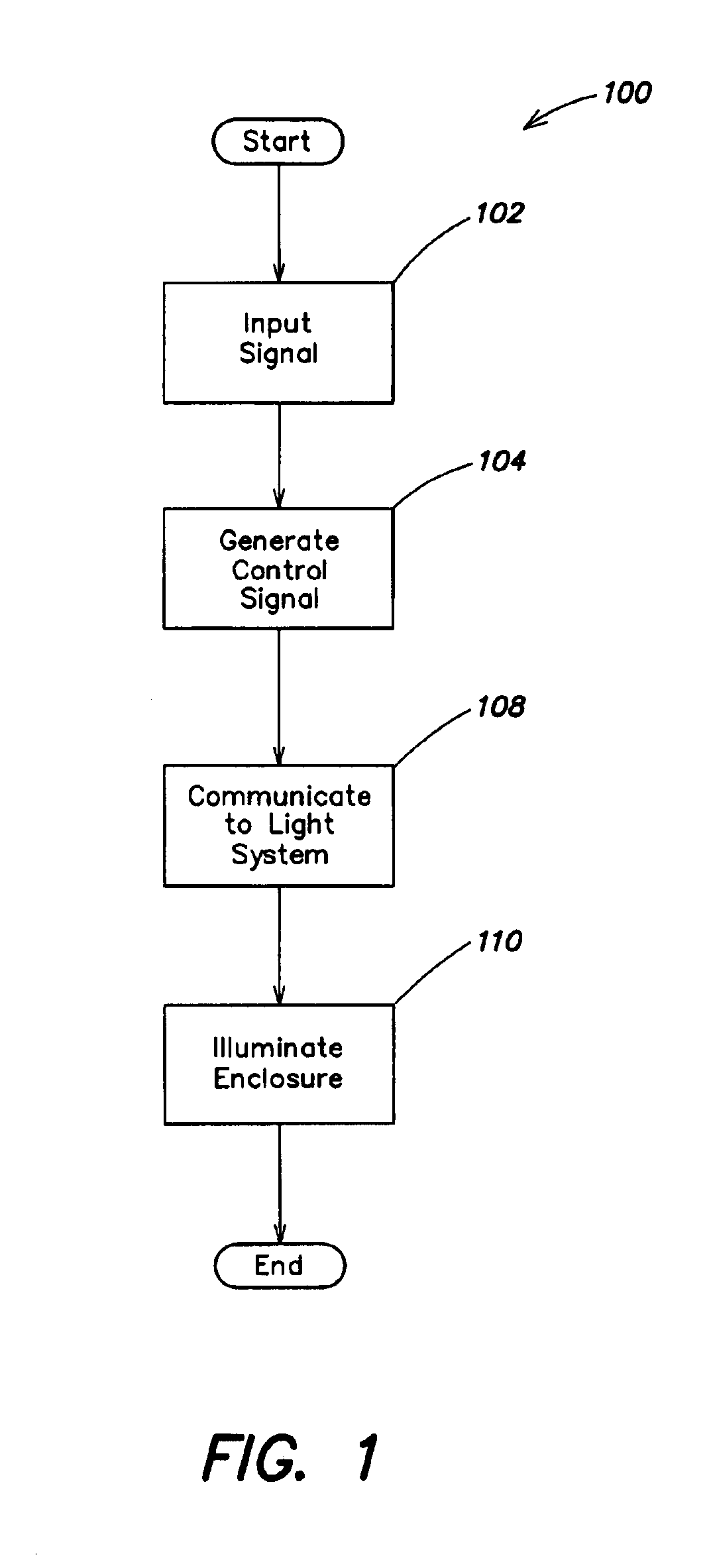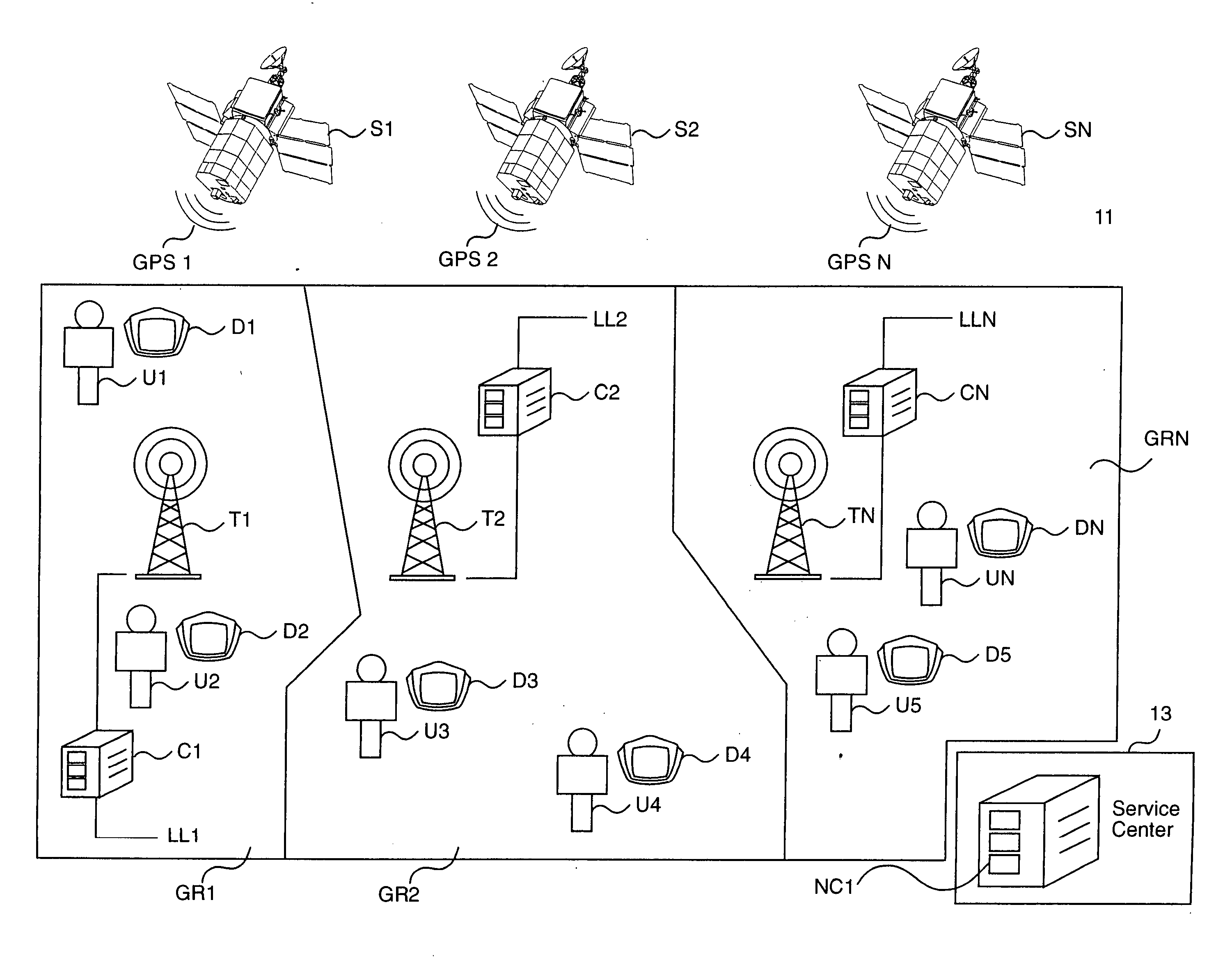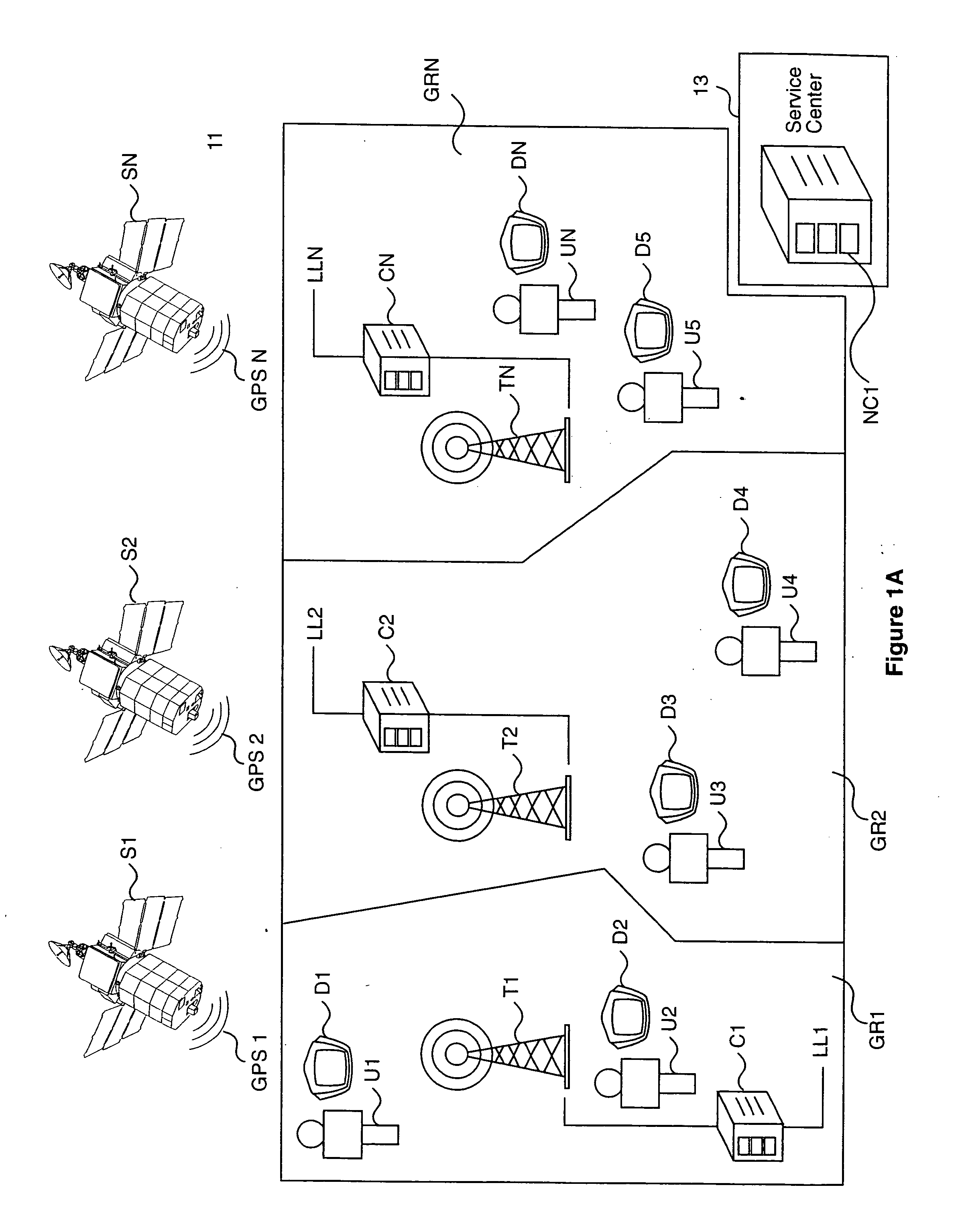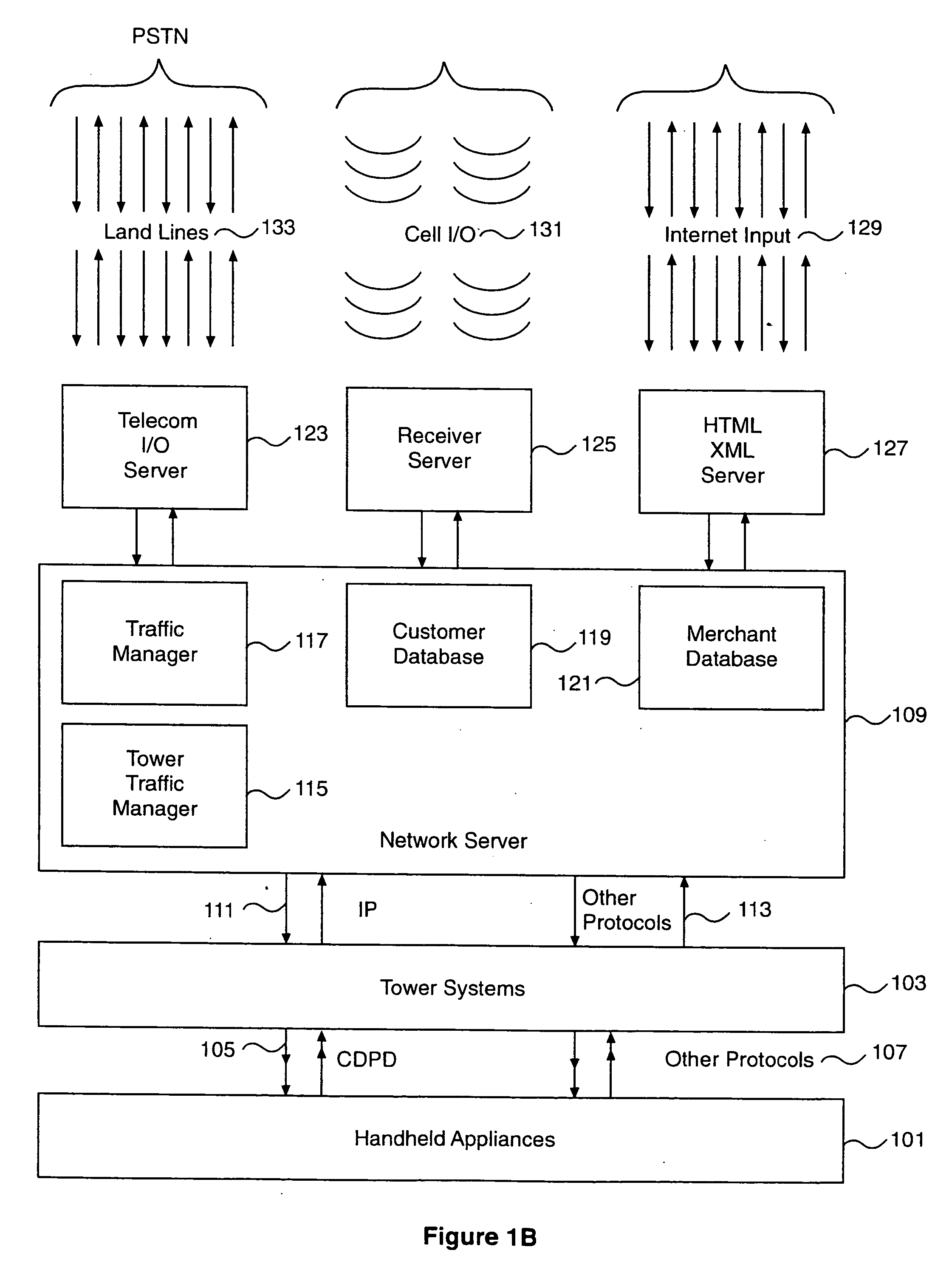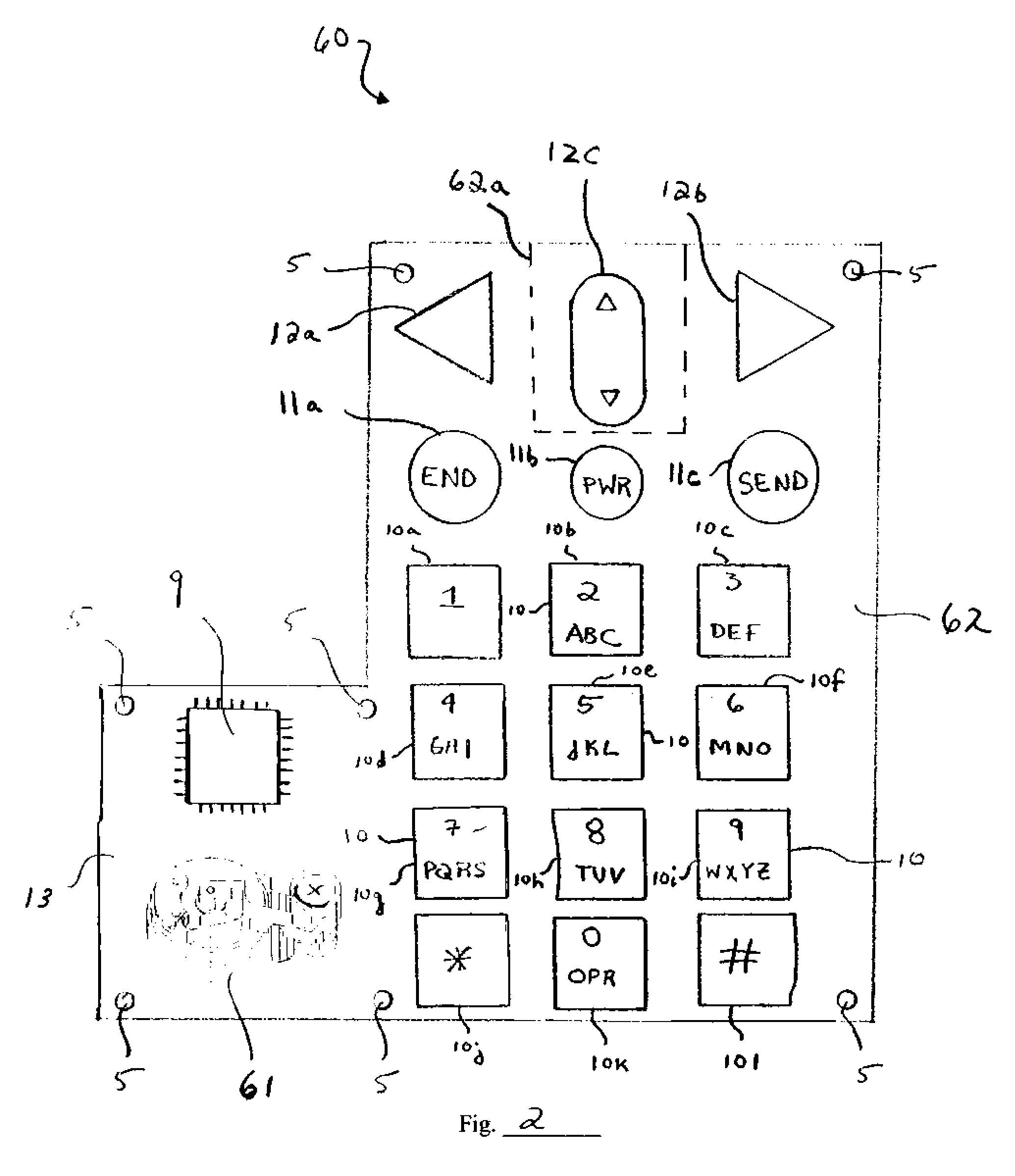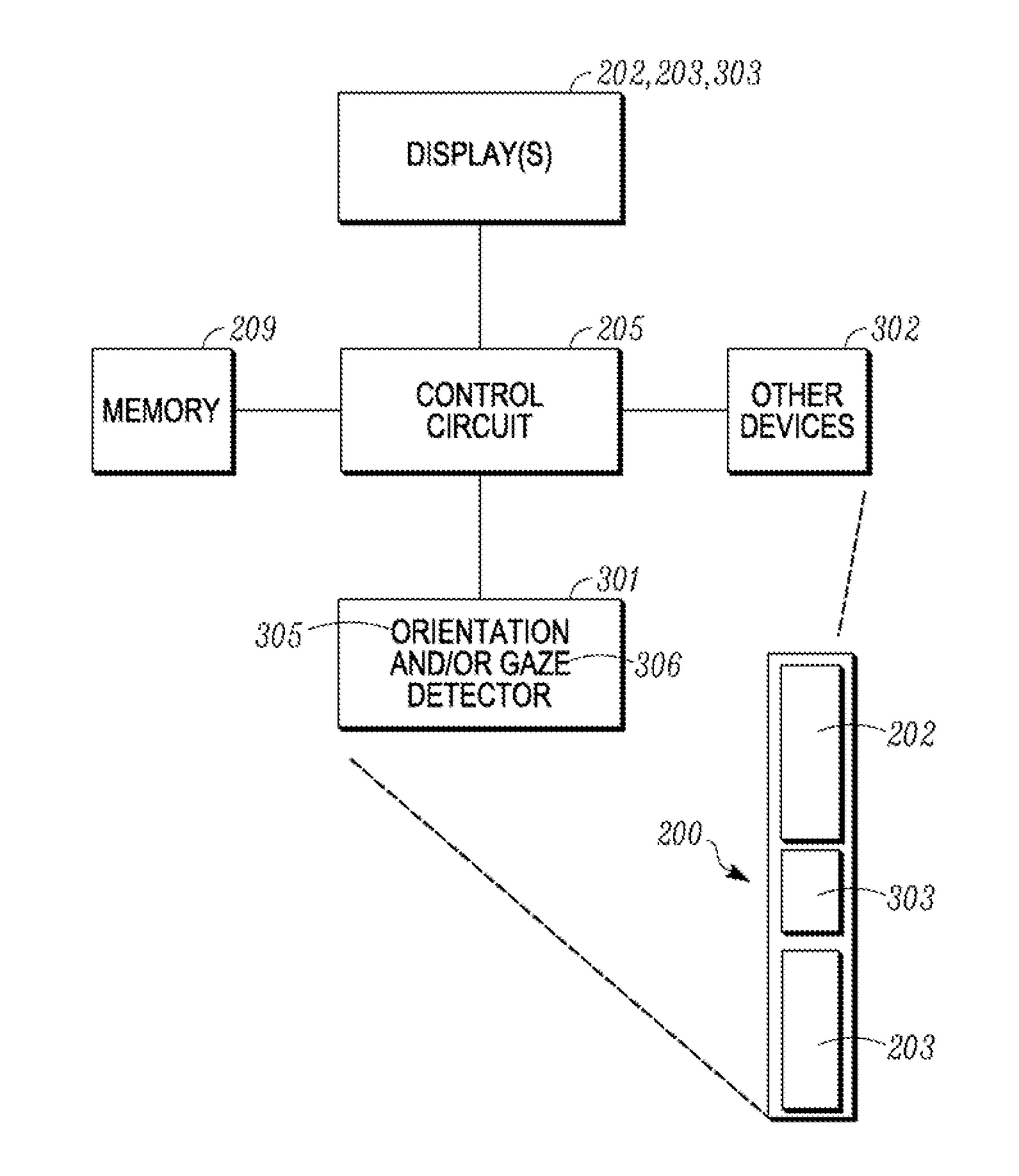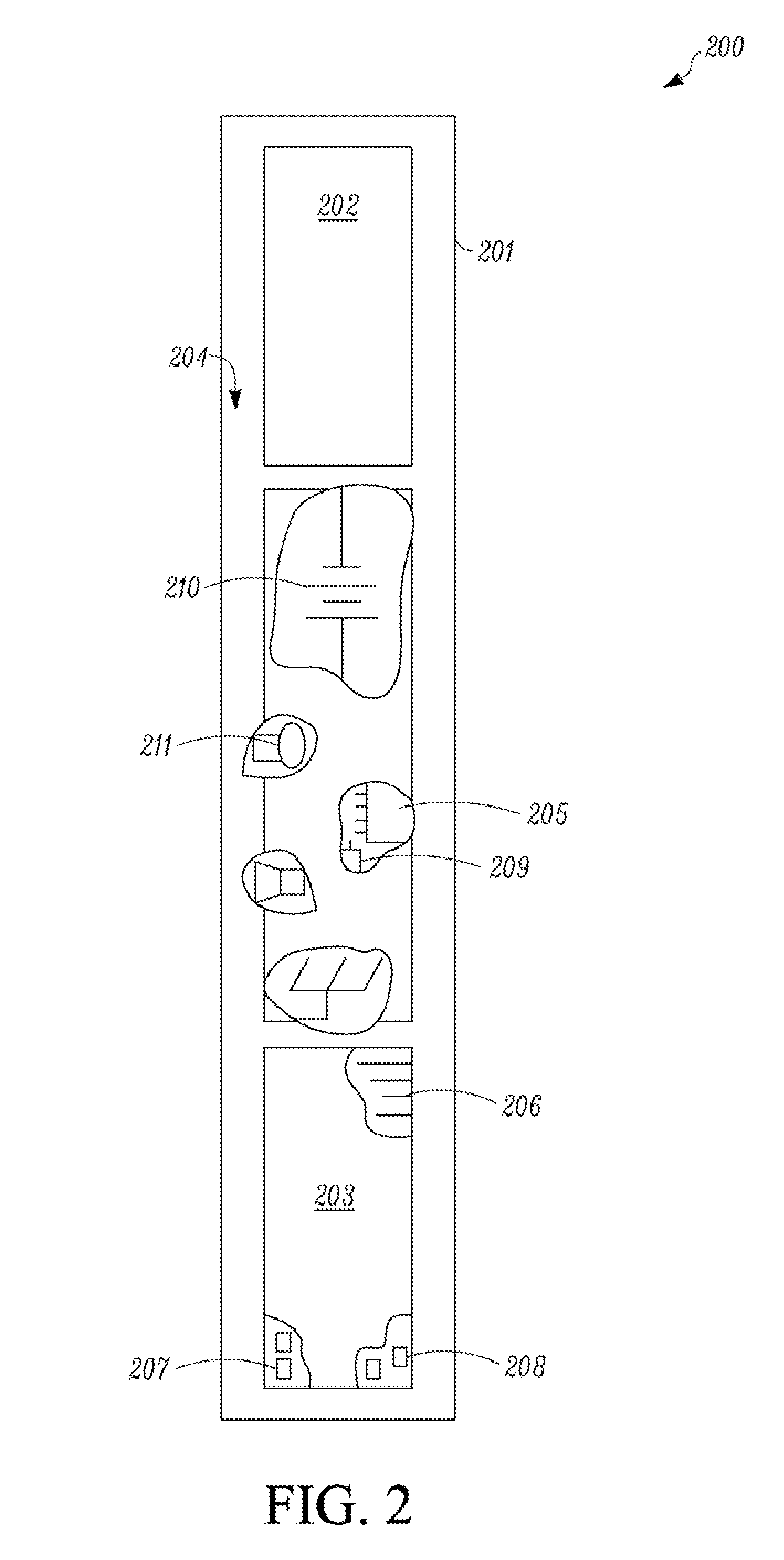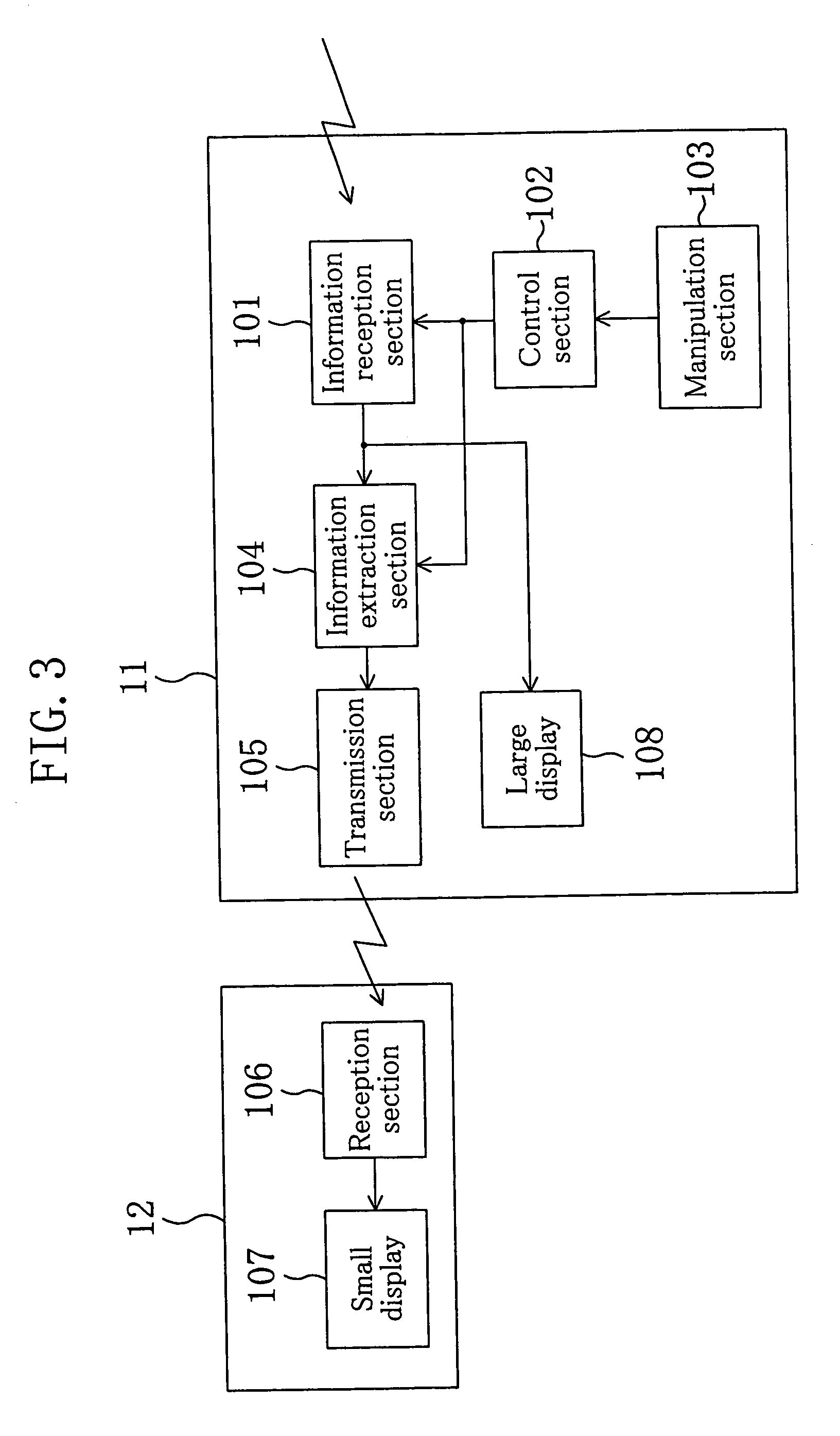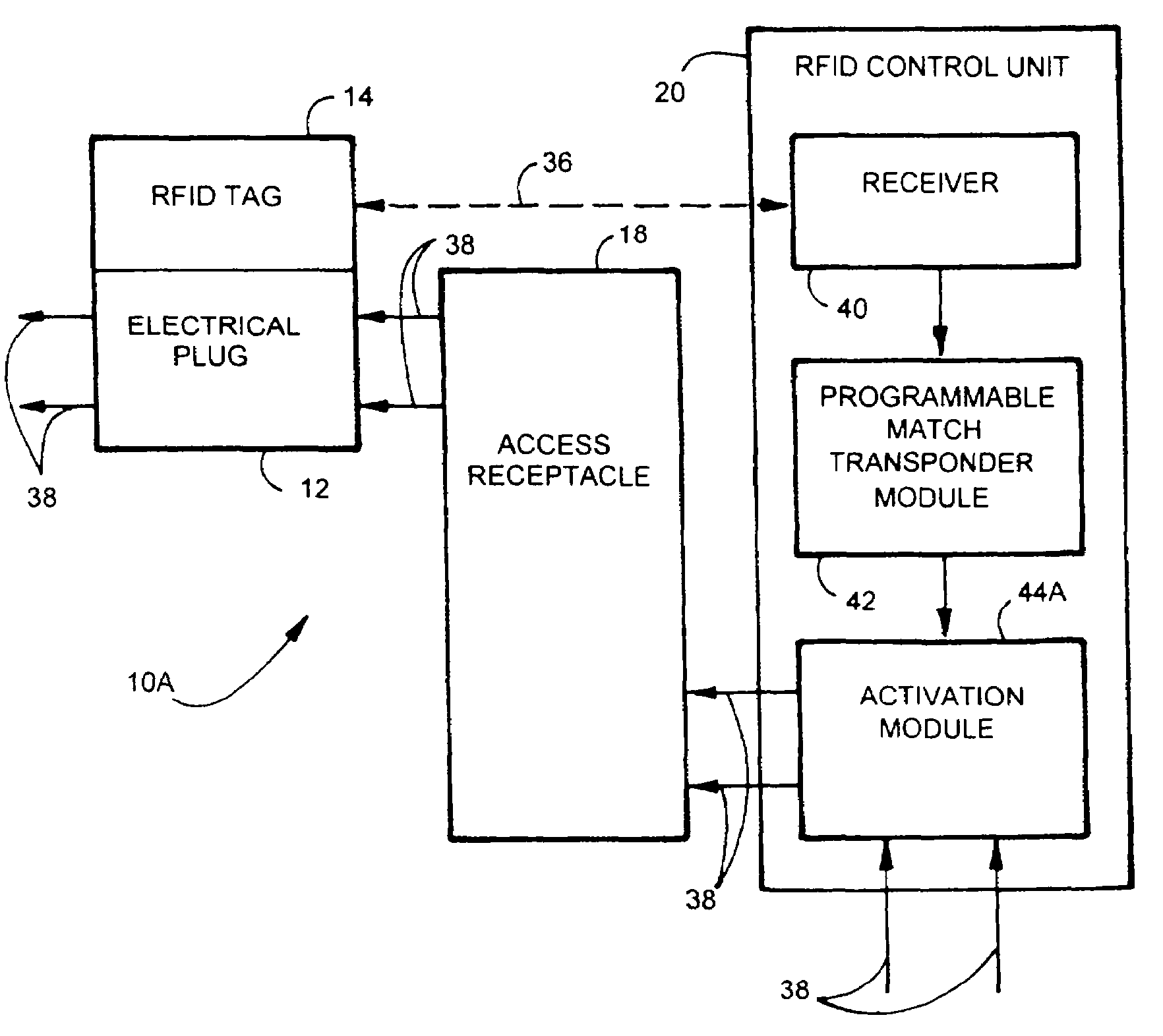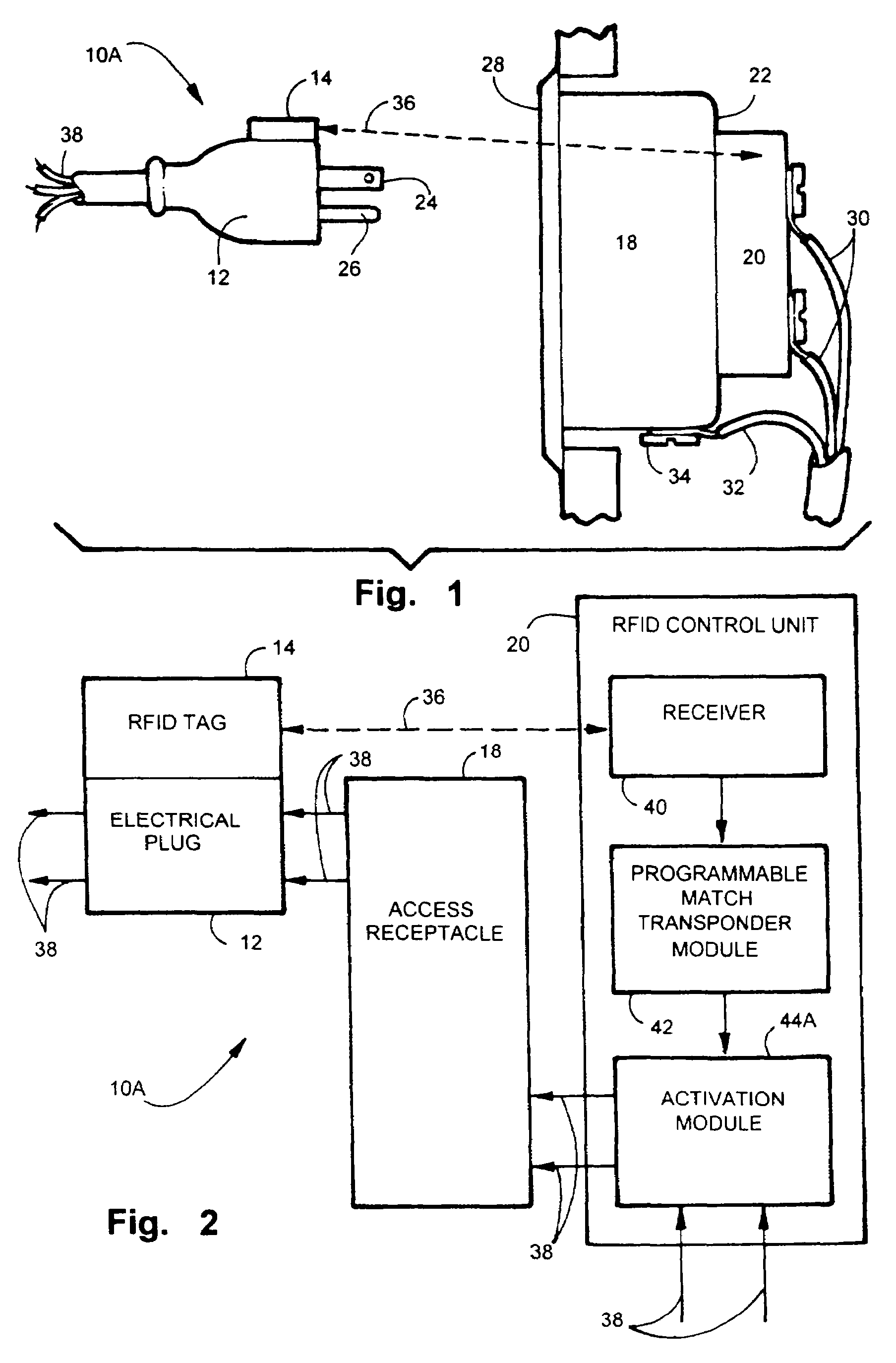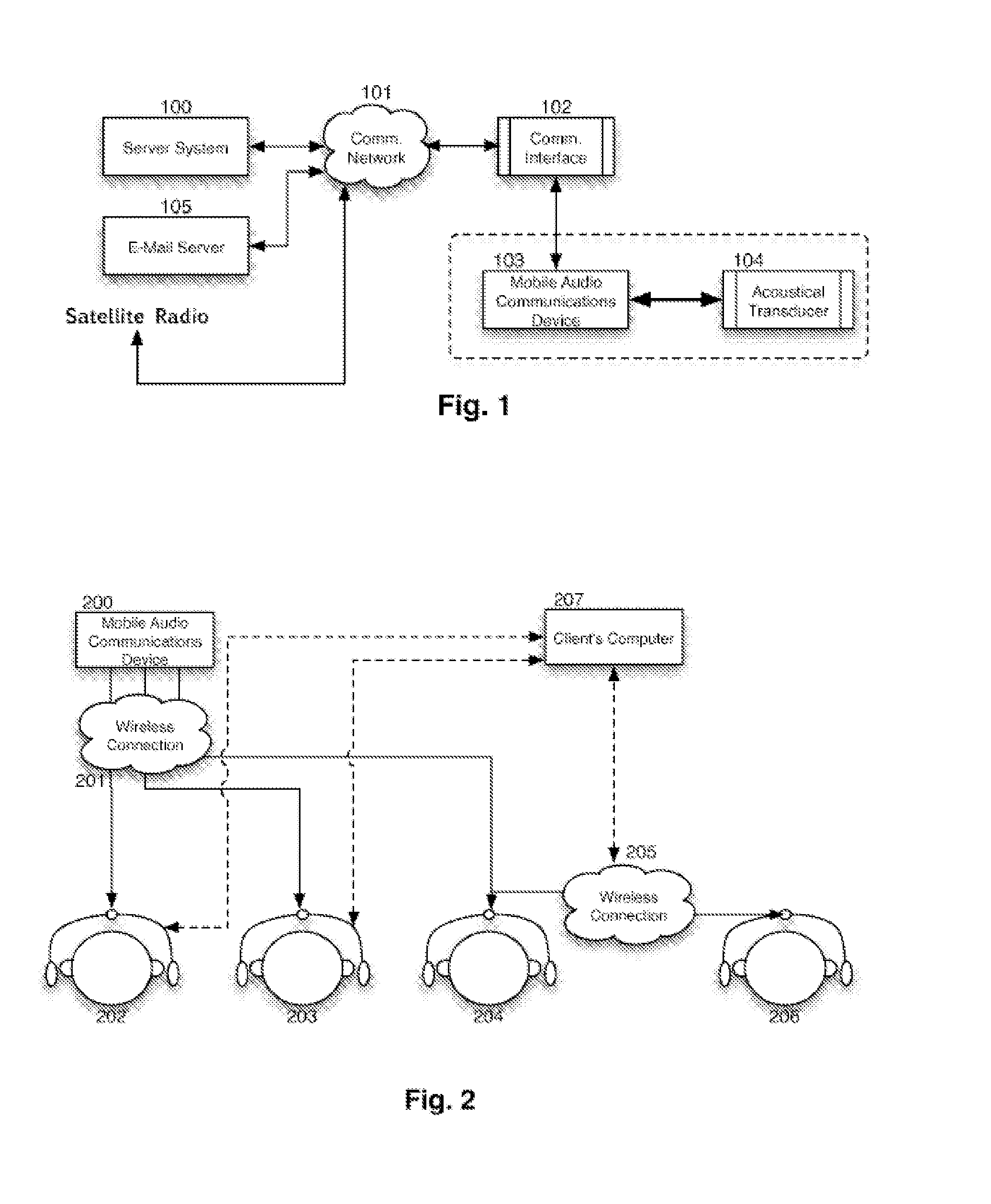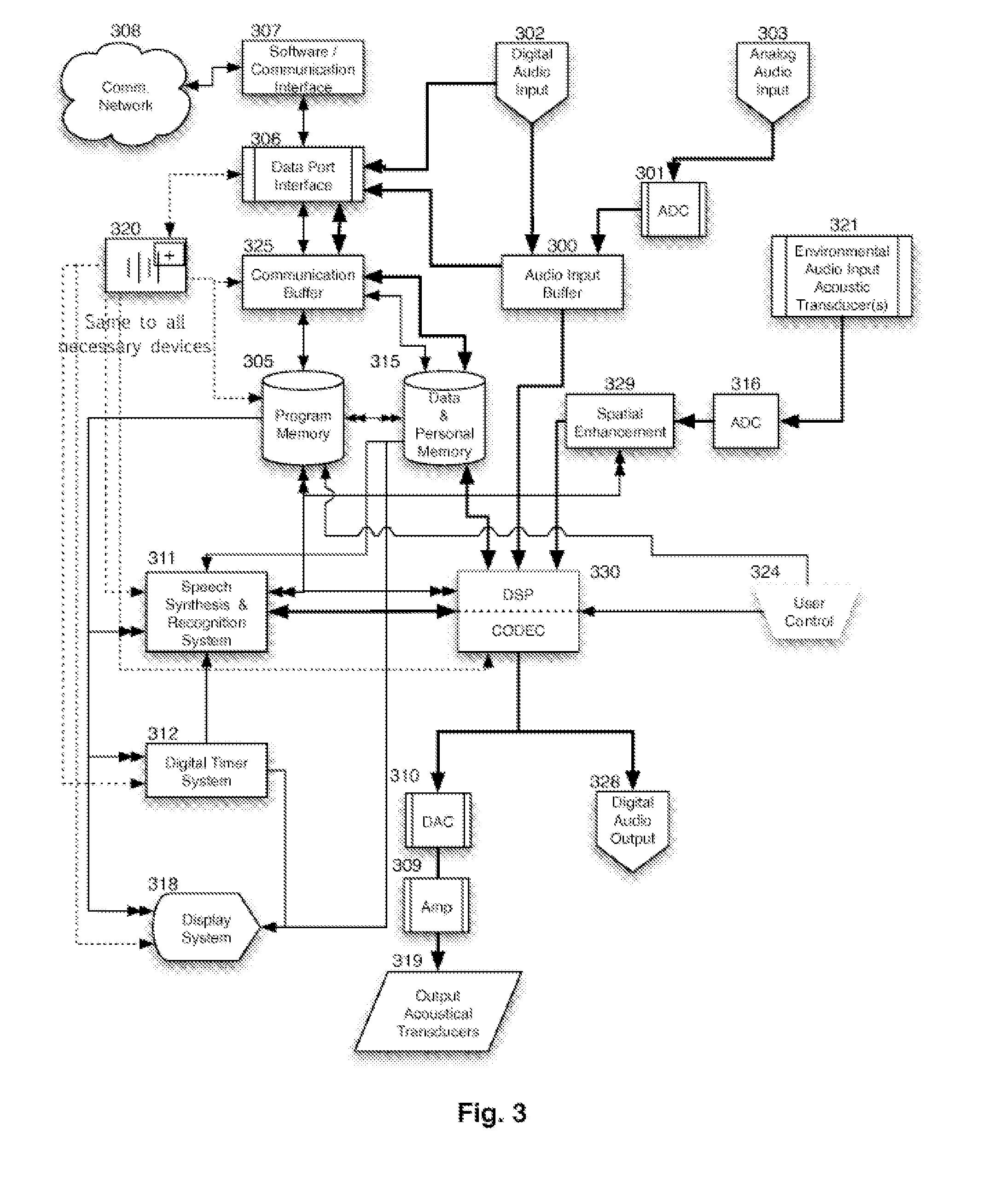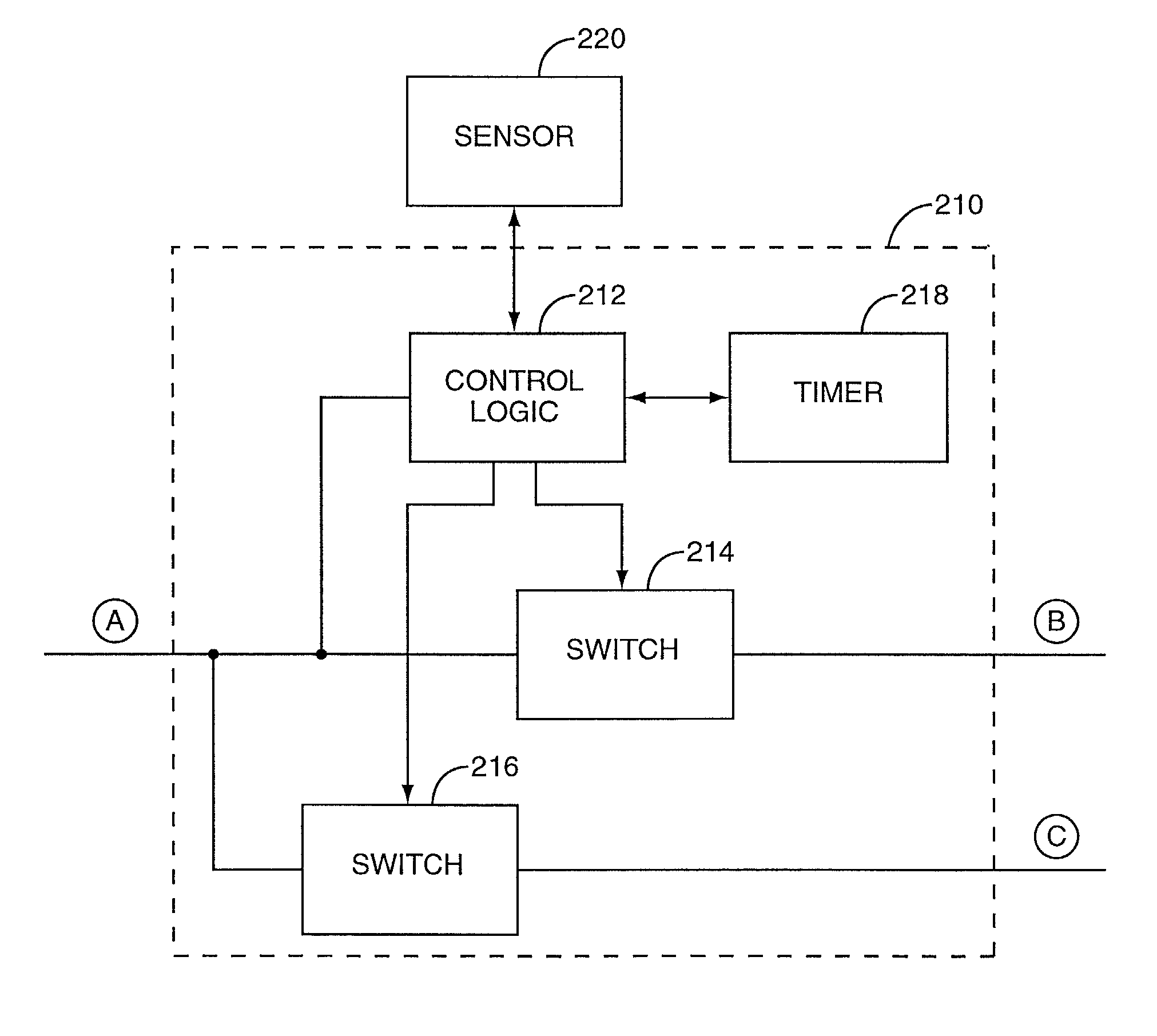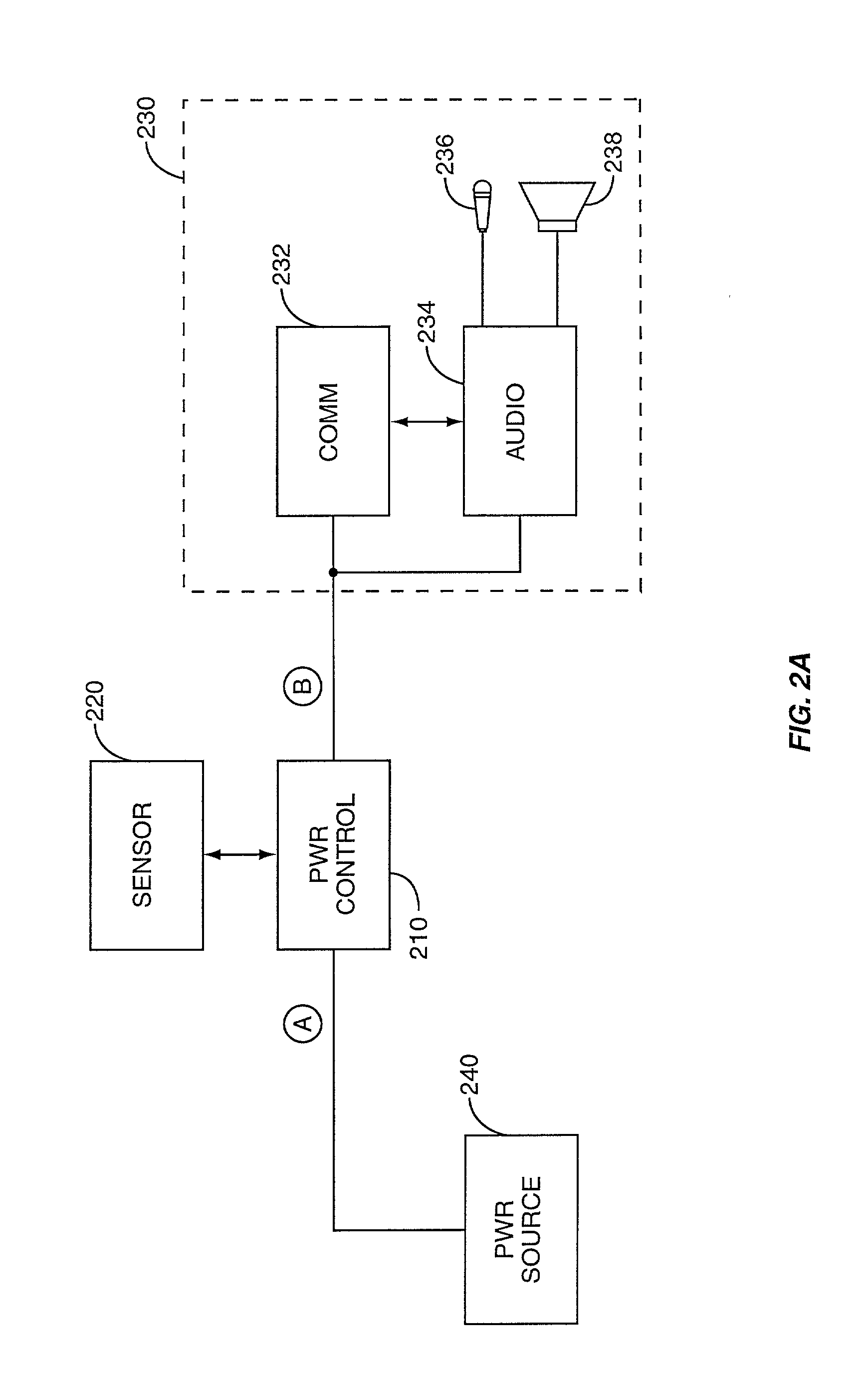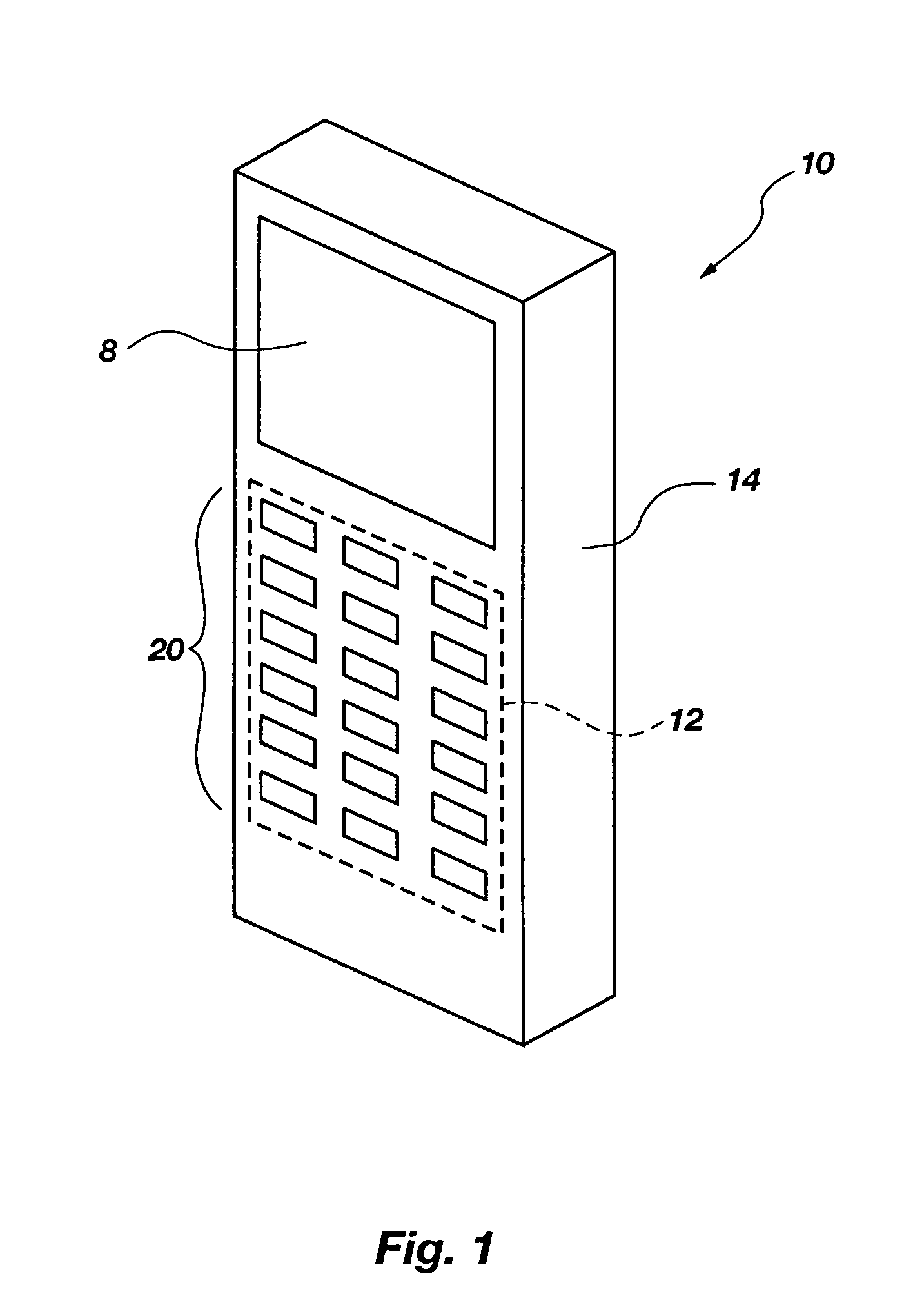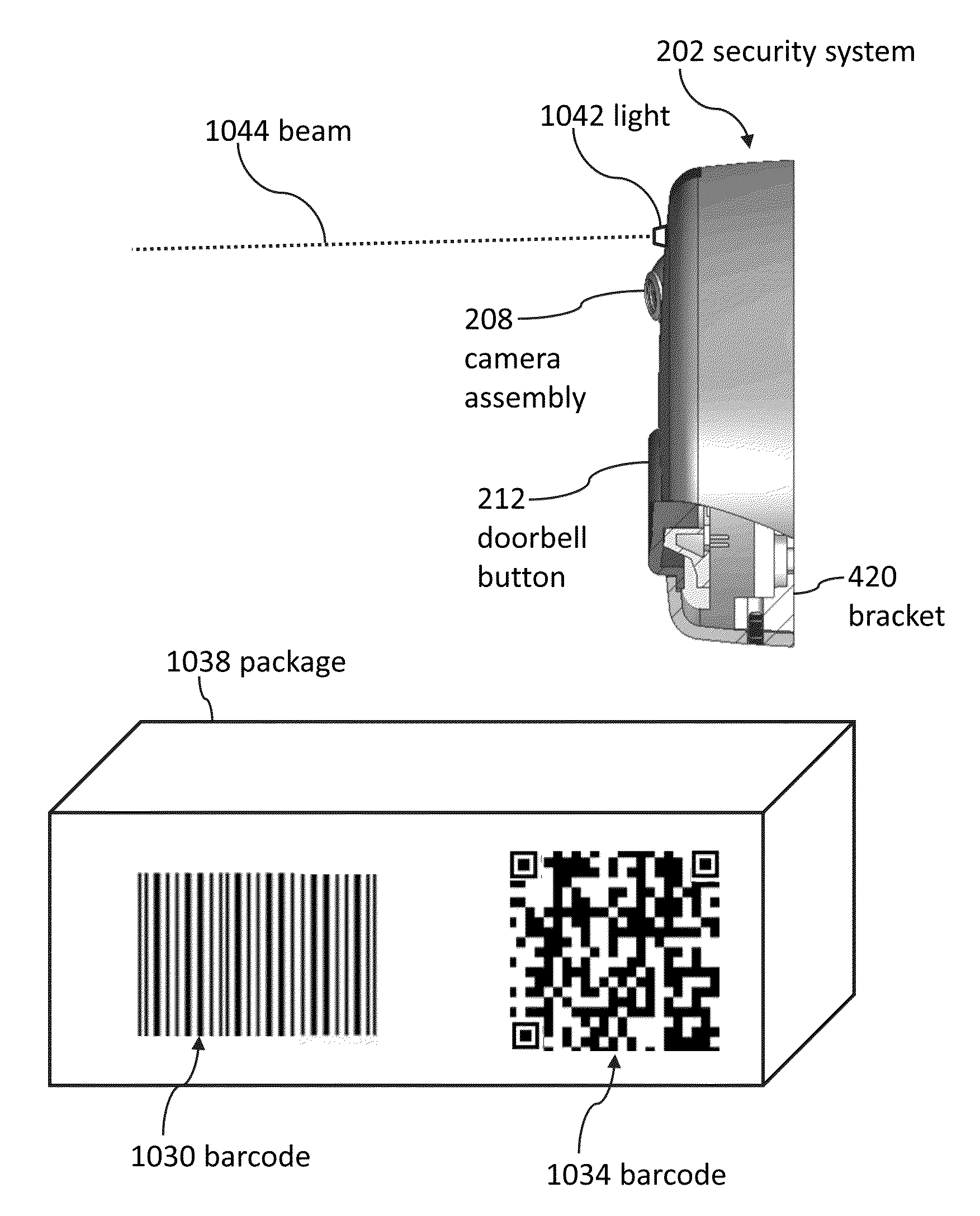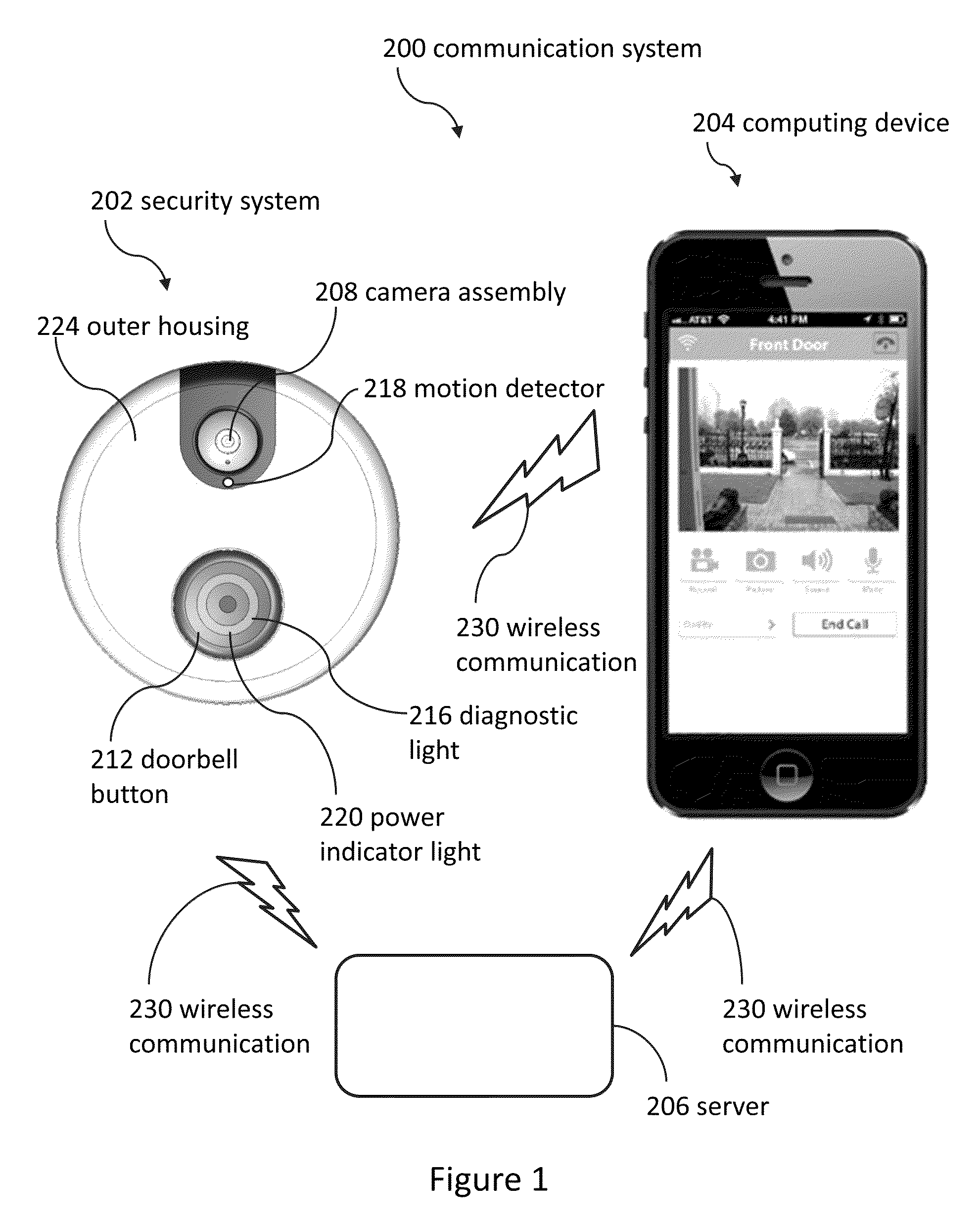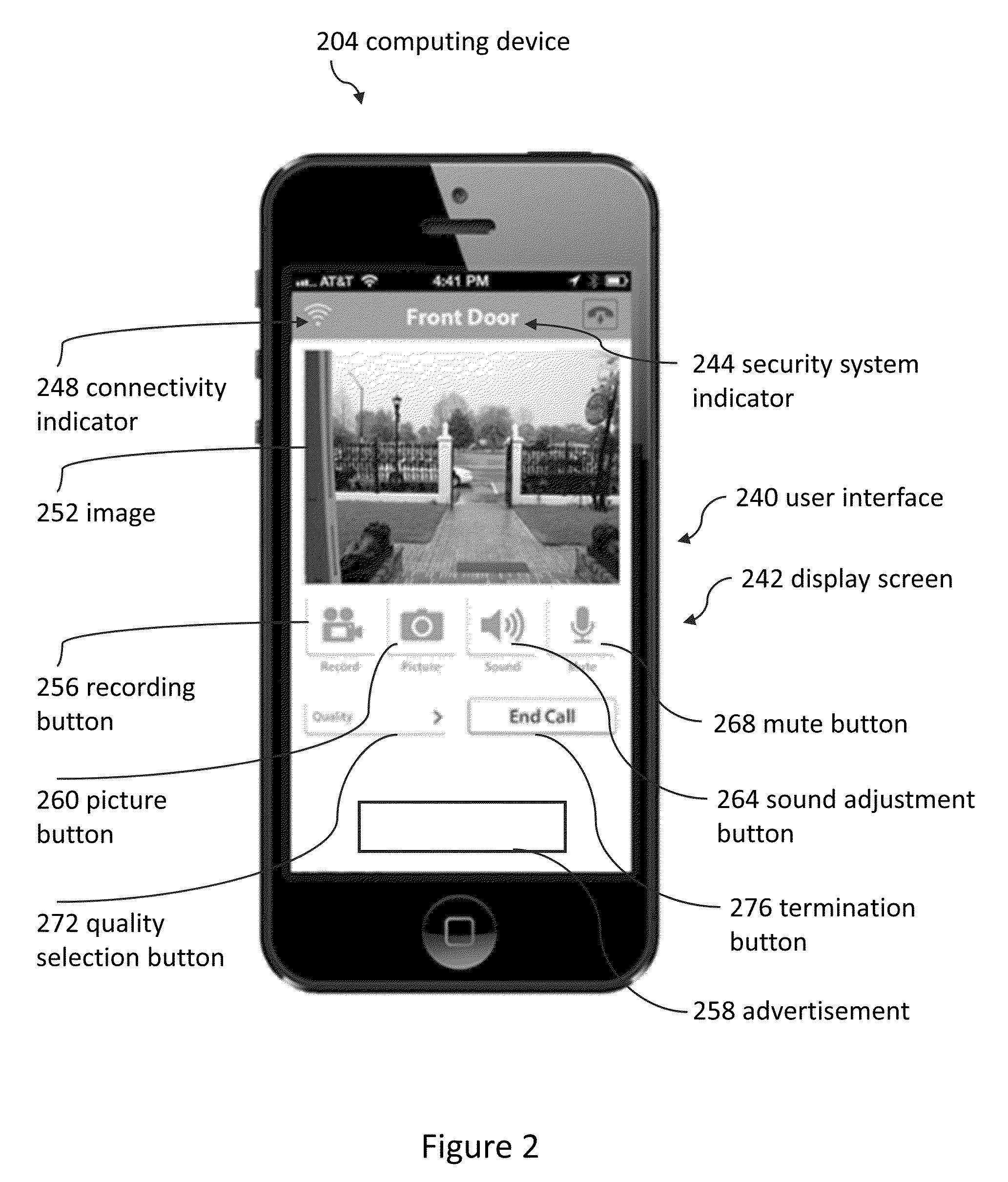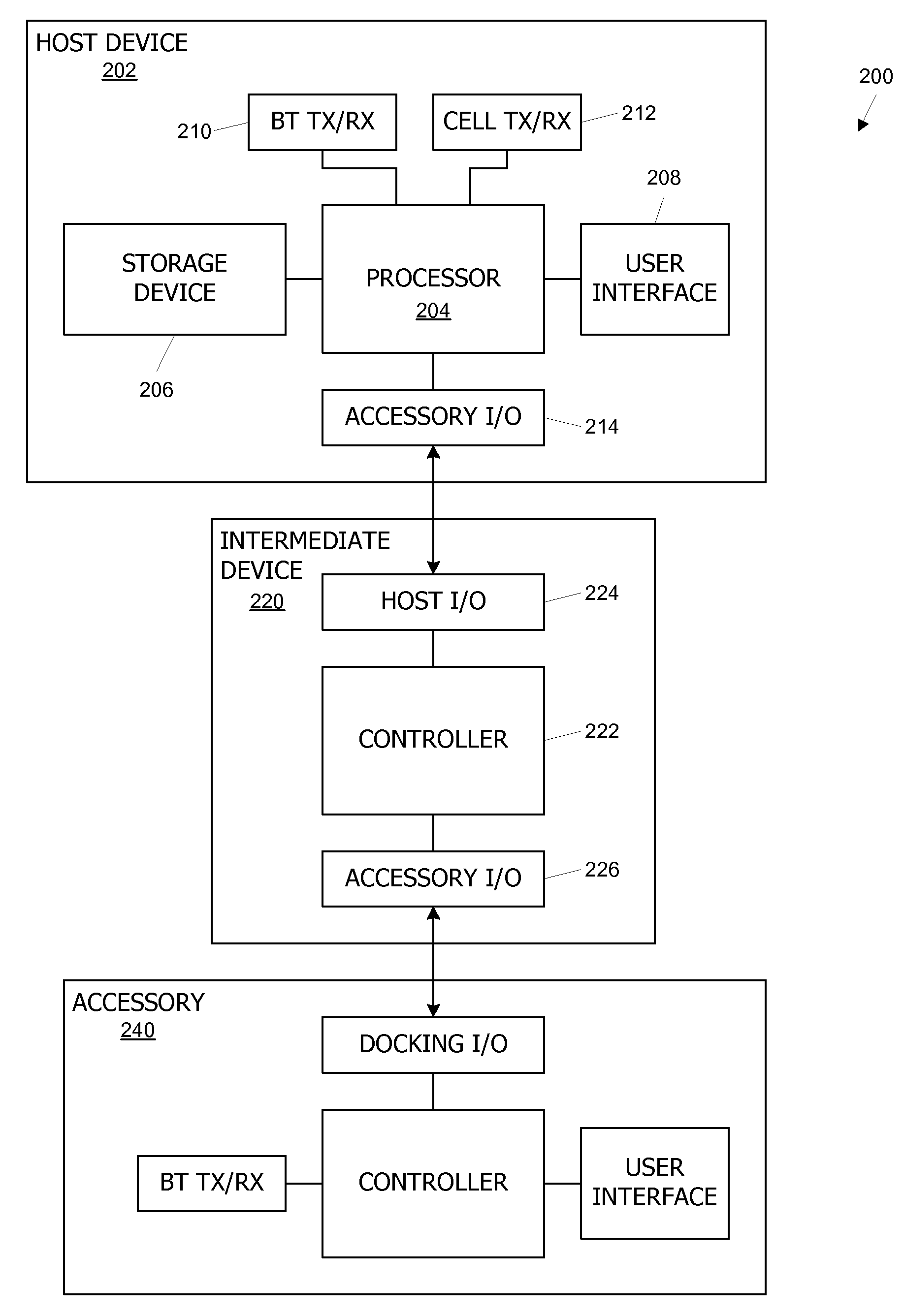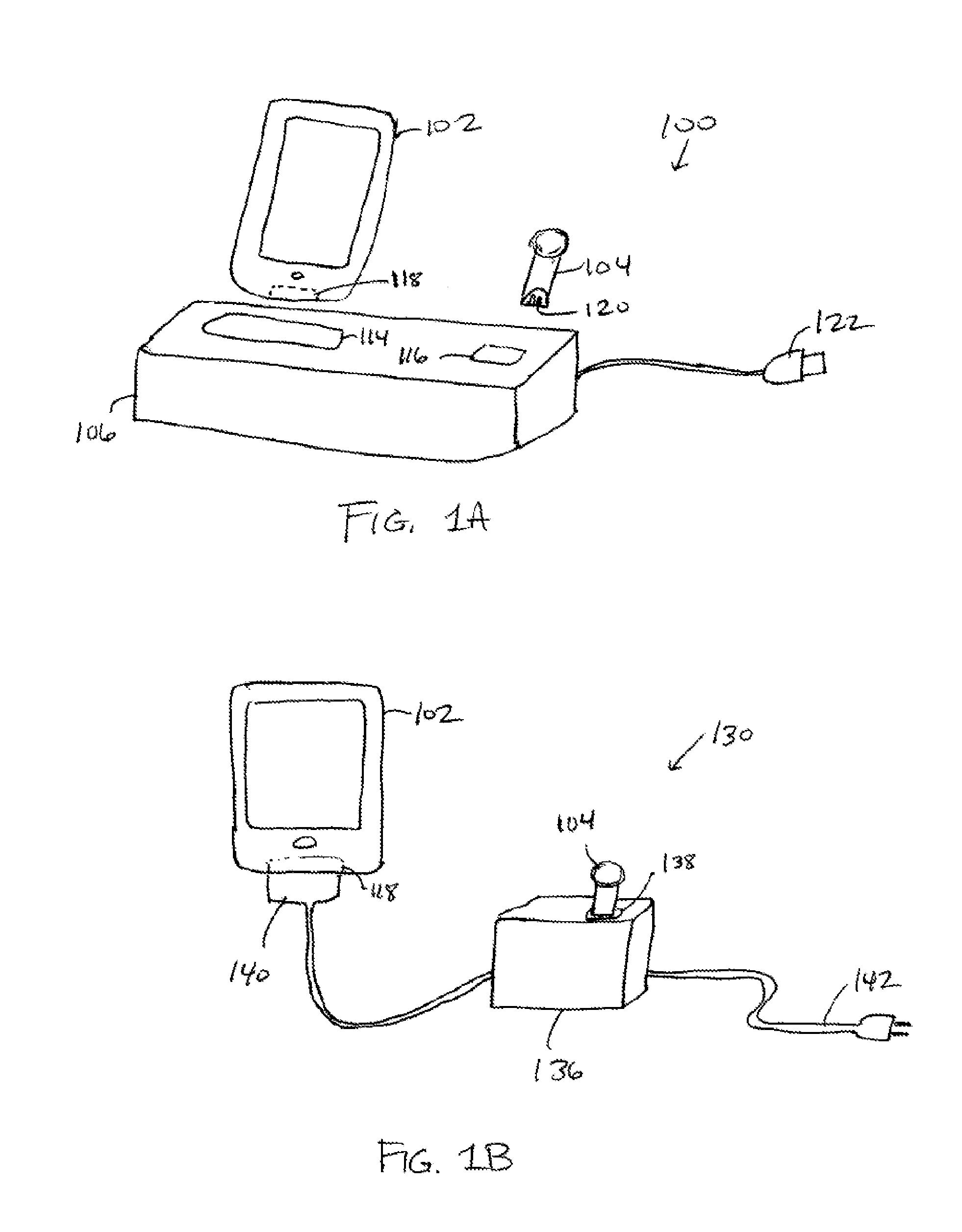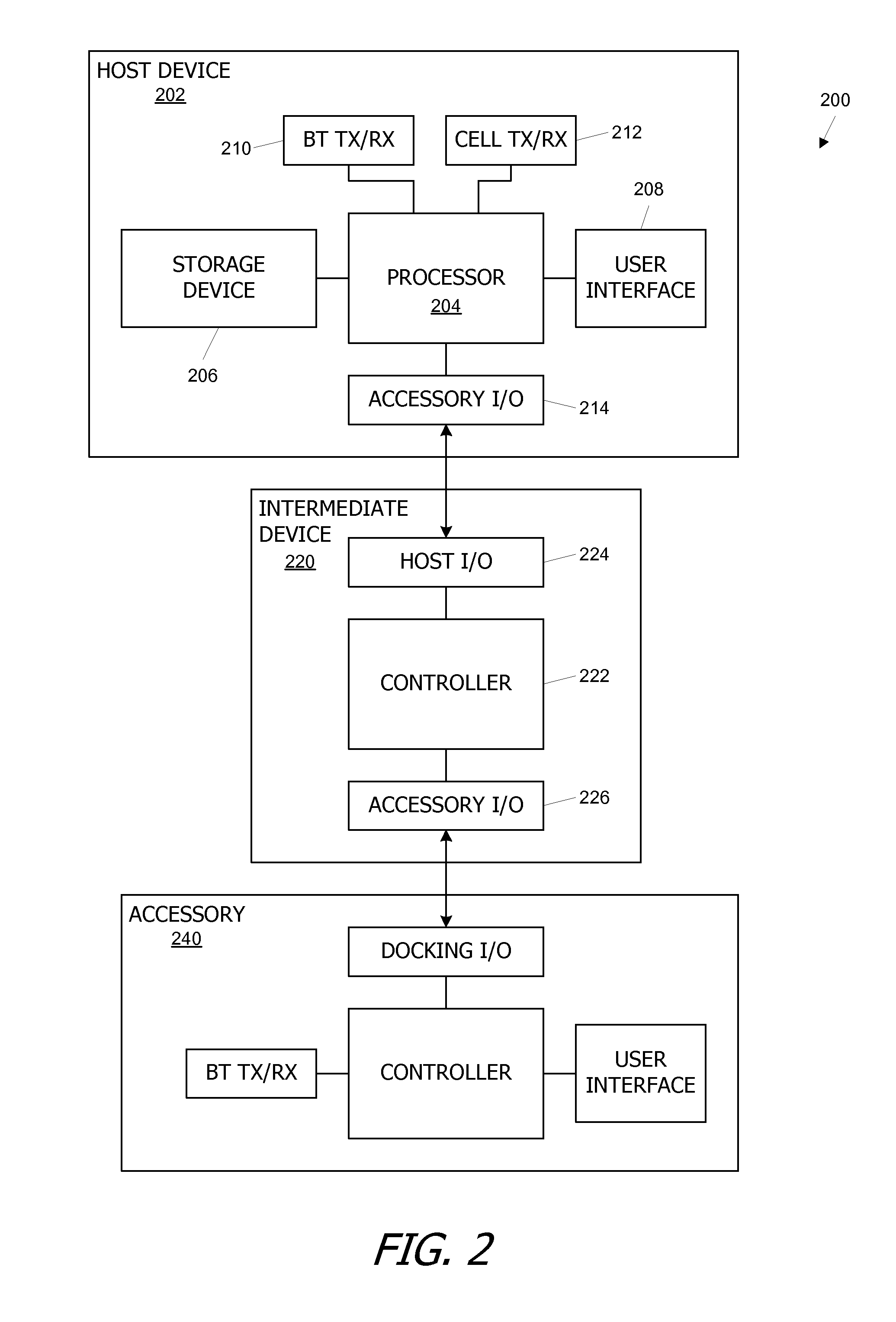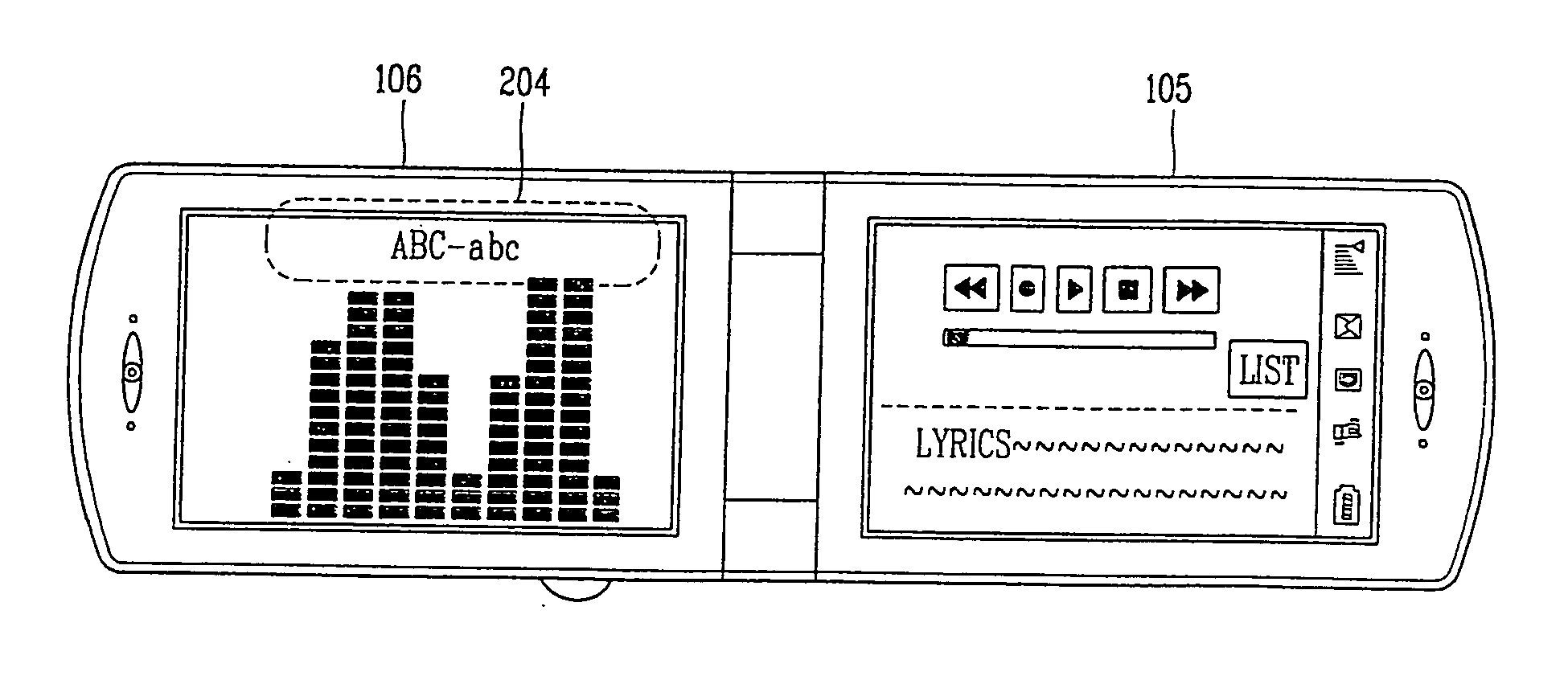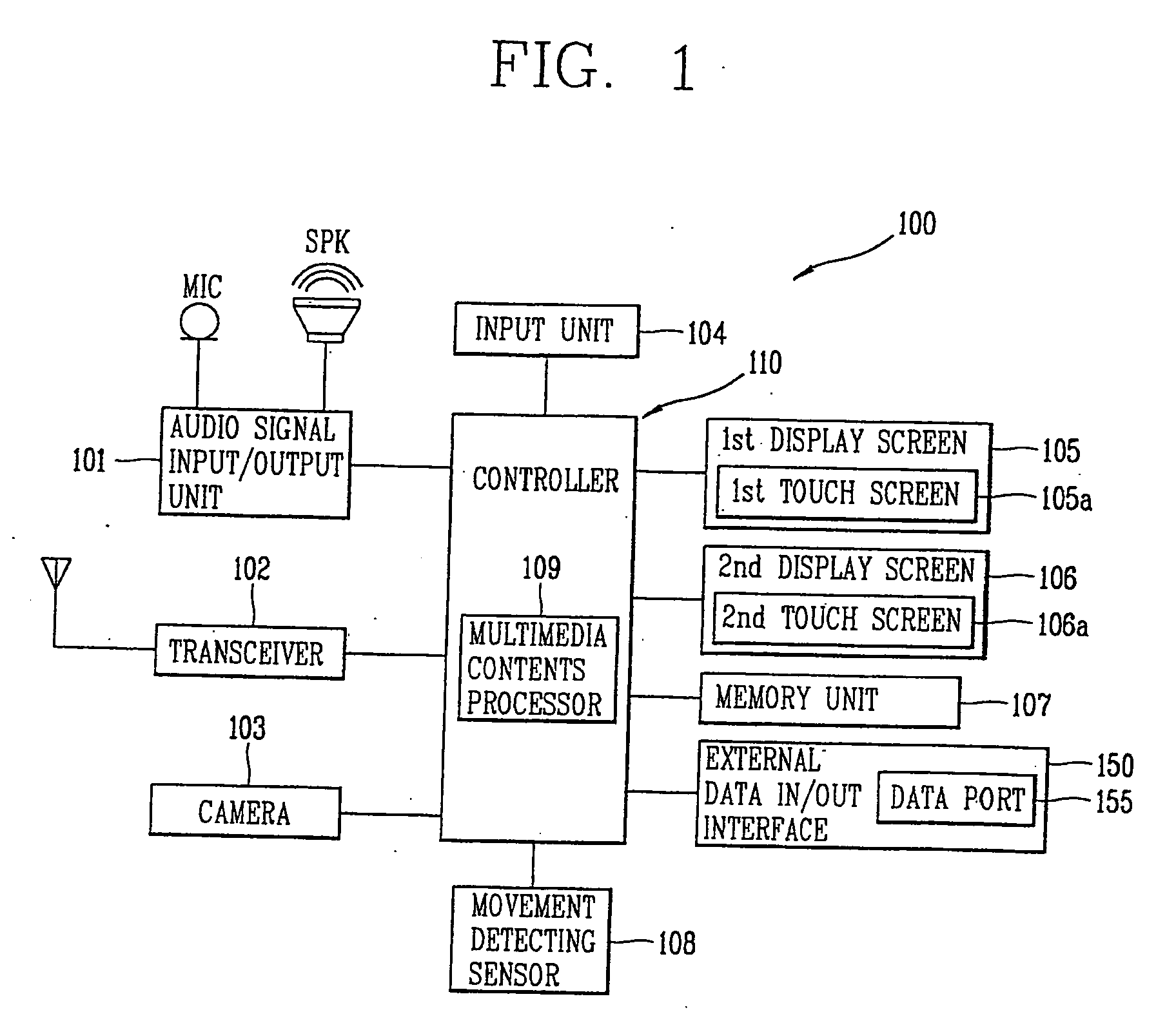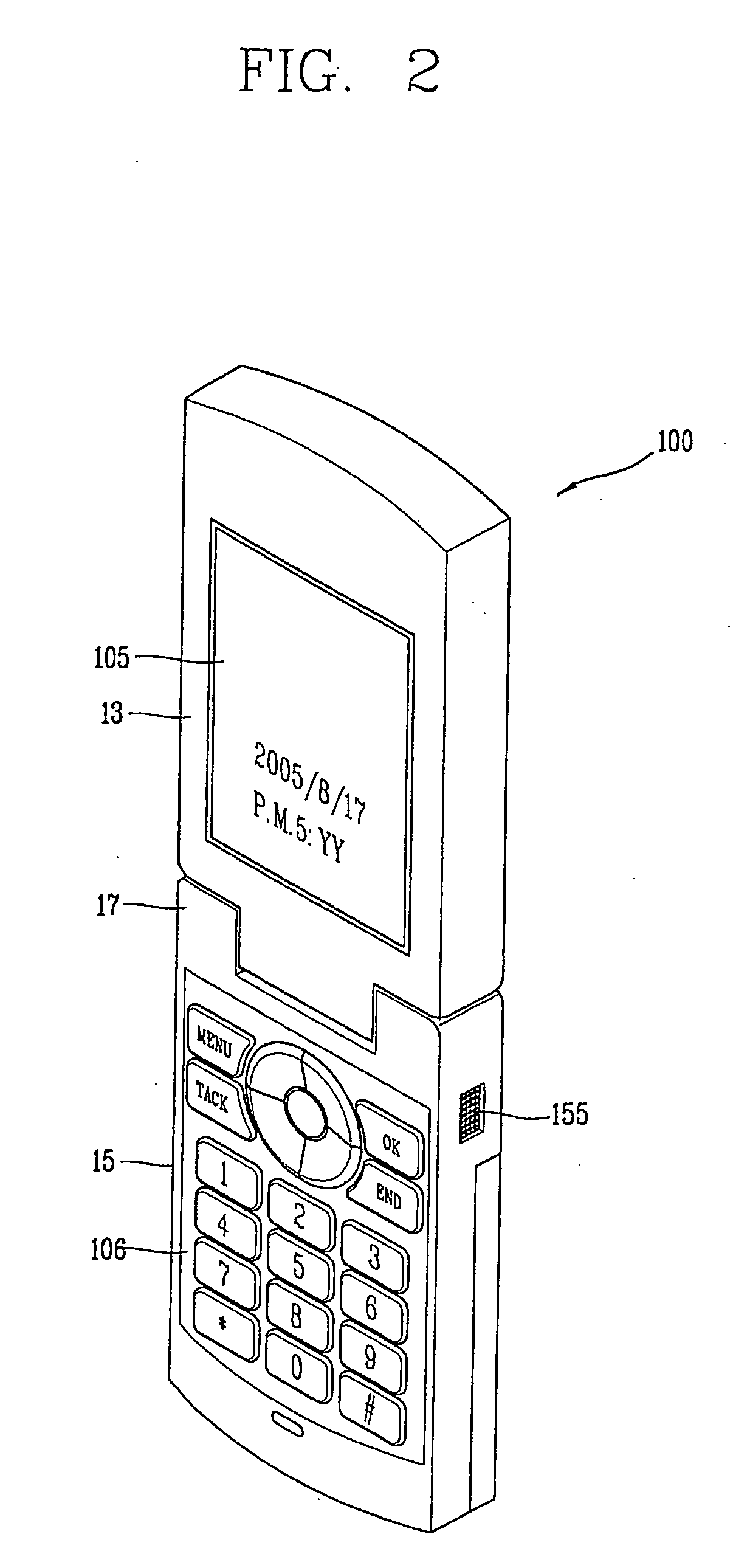Patents
Literature
Hiro is an intelligent assistant for R&D personnel, combined with Patent DNA, to facilitate innovative research.
45038results about "Telephone set constructions" patented technology
Efficacy Topic
Property
Owner
Technical Advancement
Application Domain
Technology Topic
Technology Field Word
Patent Country/Region
Patent Type
Patent Status
Application Year
Inventor
Head-mounted display apparatus for retaining a portable electronic device with display
Owner:APPLE INC
Industrial design for consumer device based scanning and mobility
ActiveUS20150028104A1Easy to holdLine/current collector detailsCharacter and pattern recognitionDisplay deviceTouchscreen
A data entry and scanning apparatus that includes a commercially available mobile device wherein said commercially available mobile device with a touch screen display, a processor, and a wireless communications network access point, a scanning device, an interface, and a power source that external to the commercially available mobile device and connected to the interface, and a casing that does not cover the touch screen display.
Owner:HONEYWELL INT INC
Terminal and electronic water-resistance method
ActiveUS9590433B2Avoid water damageDigital data processing detailsScattering properties measurementsElectricityElectrical resistance and conductance
A terminal and electrical water-resistance method, the terminal includes: a circuit board, a battery providing a power source for the circuit board, a housing provided with a transparent medium used for reflecting light; the circuit board includes: a detection module, configured to: emit light towards the transparent medium, receive the light reflected by the transparent medium to convert into electric signal data to send to a control module; the control module, configured to: receive the electric signal data to compare with preset data, trigger the power-off switch when a difference value between the electric signal data and the preset data reaches a preset threshold which is preset according to the light and the transparent medium, wherein, the preset data are electric signal data when the light is totally reflected by the transparent medium; a power-off switch configured to: disconnect a connection between the circuit board and the battery after triggering.
Owner:ZTE CORP
Information communication terminal device
InactiveUS6069648AImprove portabilitySolve the real problemCordless telephonesTelevision system detailsCamera lensCamera image
An upper case and a lower case are rotatably connected in a connection part. The connection part is constructed by a rotary shaft supporting part integrated in the lower case, a rotary shaft which is integrated in the upper case and a part of which is rotatably fit into the rotary shaft supporting part, and a housing member having a part rotatably fit into the rotary shaft supporting part. A video camera and a camera lens are housed in the housing member. A display / operation part is provided almost in the whole upper case and a display / operation part is provided almost in the whole lower case. In the display / operation parts and, in addition to camera images of the video camera, a reception image, and various data, touch-type operation buttons are displayed. The display / operation parts and have the functions as the operation part as well as the display part. "Recording" mode, "transmission / reception" mode, and "information acquisition" mode can be selectively set and the device can be used according to the mode.
Owner:MAXELL HLDG LTD
Integrated proximity sensor and light sensor
Apparatuses and methods to sense proximity and to detect light. In one embodiment, an apparatus includes an emitter of electromagnetic radiation and a detector of electromagnetic radiation; the detector has a sensor to detect electromagnetic radiation from the emitter when sensing proximity, and to detect electromagnetic radiation from a source other than the emitter when sensing visible light. The emitter may be disabled at least temporarily to allow the detector to detect electromagnetic radiation from a source other than the emitter, such as ambient light. In one implementation, the ambient light is measured by measuring infrared wavelengths. Also, a fence having a non-IR transmissive material disposed between the emitter and the detector to remove electromagnetic radiation emitted by the emitter. Other apparatuses and methods and data processing systems and machine readable media are also described.
Owner:APPLE INC
Systems and methods for color changing device and enclosure
A color-changing device which includes an enclosure at least a portion of which is material which is desired to change color. There is also included an illumination device, such as an LED or collection of LEDs which can illuminate the material. There can also be included a controller which can take some form of input, such as from a network, or a sensor, and can convert that input into a signal to control the illumination. There is also included a method for performing such color change.
Owner:SIGNIFY NORTH AMERICA CORP
Method and apparatus for scheduling presentation of digital content on a personal communication device
InactiveUS20050043060A1Increase probabilityLevel of controlDigital data information retrievalNetwork traffic/resource managementTelevision setLocation aware
A method and apparatus wherein a software scheduling agent resides on a communication network and / or client device, such as location-aware wireless communication appliances, television set top boxes, or other end user client devices is disclosed. The software scheduling agent is part of a probabilistic modeling system in which the scheduler operates to perform constrained random variation with selection. Digital content is generated, organized, and stored on the communication network and / or the client devices. An electronic digital content wrapper, which holds information in the form of data and metadata related to the digital content is associated with each item of digital content. Contextual profiles for each user and each item of digital content are established by the users and the network and maintained by a service provider on the communication network. The software scheduling agent compares the contextual digital content profile for each item of digital content to the contextual user profile for each user to determine which digital content should be offered for presentation to each user. The comparison and determination of which items of digital content should be offered for presentation to which users is performed by a process of constrained random variation. After the software scheduling agent determines which items of digital content would most likely be relevant or interesting to the user, the digital content is transmitted, either in whole or in part, at predetermined times over the communication network to the appropriate client devices. The digital content is then stored, either in whole or in part, in cache memory on the client device until an appropriate time when the digital content is digitally packaged and presented to particular users over those user's client devices.
Owner:WIRELESS AGENTS
Vehicle rearview mirror assembly incorporating a communication system
InactiveUS6980092B2Easy to installMinimal additional wiringMirrorsSimultaneous aerial operationsCommunications systemControl system
A vehicle communication and control system is provided that may be more readily installed in a vehicle and that utilizes minimal additional wiring. According to some of the disclosed embodiments, the electrical components of the “brick” of a communication and control system are integrated into a rearview mirror assembly. Preferably, the microwave antenna for the GPS and the cellular telephone antenna are also integrated into the rearview mirror assembly. Various functions and features of the system are also disclosed.
Owner:GENTEX CORP
Stereophonic reproduction maintaining means and methods for operation in horizontal and vertical A/V appliance positions
InactiveUS6882335B2Improved audio listeningEnhance the imageTelevision system detailsDevices with sensorDisplay deviceEngineering
Display apparatus including a display and an orientation sensitive interface mechanism is disclosed. In an exemplary embodiment, the orientation sensitive interface includes first and second loudspeaker pairs. The first loudspeaker pair includes first and second loudspeakers and the second loudspeaker pair includes the second and third loudspeaker. The first and second loudspeaker pairs are disposed along transverse directions to each other. The display apparatus comprises a switch which switches between the first loudspeaker pair and the second loudspeaker pair. By providing the respective loudspeaker pairs, and switching between them, it is possible to orient the display apparatus in transverse directions corresponding to respective loudspeaker pairs, yet maintain a substantially stereophonic reproduction for each orientation.
Owner:HTC CORP
Protective enclosure for electronic device
InactiveUS7609512B2Digital data processing detailsRecord information storageTablet computerDevices fixation
A protective enclosure for an electronic device such as a laptop computer or tablet computer that comprises a shell that is capable of enclosing and substantially surrounding the electronic device. The shell is substantially watertight, substantially rigid and substantially crush-resistant. The inside of the shell has a hook and loop liner with shock absorbing corner bumpers having hook and loop type bases so that the bumpers may attach at any point on the liner inside the shell to accommodate electronic devices of various sizes and to secure the device inside the enclosure in a shock absorbent suspended manner. The shell may further comprise a USB connector hub for connection to the USB port of a laptop computer or PC tablet enclosed in the protective shell.
Owner:OTTER PRODS
Multiple display portable computing devices
InactiveUS6643124B1Easy to useDifficult to differentiateInput/output for user-computer interactionDevices with multiple display unitsEngineeringMotherboard
A portable computing device is equipped with multiple display panels. The display panels and hinged, jointed or otherwise disposed to rotate or slide with respect to one another in a transition from a compact configuration to an expanded configuration. In a basic embodiment three output screens take a form of a triptych for which an input panel forms a base. The output panels are deployed with a bend when opened and images angled in towards an observer. The display panels comprise a main panel and two auxiliary panels. In a variation a forth display panel is rotatably or foldably joined to the central display panel so that a total of four display panels may be deployed in a hub and petal configuration. The side panels may be eliminated from the four panel embodiment so that the input panel and two remaining display panels form a vertically orientable triptych with the input panel serving as base.
Owner:WILK PETER J
Multiple monitor display apparatus
InactiveUS20060082518A1Devices with multiple display unitsCathode-ray tube indicatorsDisplay deviceHuman–computer interaction
A multiple monitor apparatus in the form or a laptop PC, a desktop monitor, a mobile device, and the like. In dual screen mode, the additional monitor is typically presented displaying different content and centered to the user. In single screen mode, the additional display enclosures are retracted and stored in such a manner that they do not present themselves to the user. A guiderail assembly is used to center both display enclosures relative to the user. The guiderail assembly may be motorized or manually effected and may be located above or below the primary enclosure hinge. The secondary enclosure may be extended and retracted from the primary enclosure by the use of slider arms. The secondary enclosure may also be hinged to the primary enclosure, utilize pegs, ride on its own guiderail, and detach from the primary enclosure or the apparatus. Independent guiderails may also be employed to center two or more displays relative to a user. In one embodiment, the monitor may be rotated from landscape to portrait view.
Owner:RAM PRANIL
Method and apparatus for providing tactile sensations
ActiveUS20030122779A1Input/output for user-computer interactionCathode-ray tube indicatorsTactile sensationTouchpad
Abstract of Disclosure Products and processes for providing tactile sensations to input devices or electronic devices are provided. Input devices include mechanical input devices (such as, for example, mechanical switches) and non-mechanical input devices (such as, for example, touchpads). Tactile feedback is provided by using an actuator or other means in communication with the input device or electronic device. A controller may be employed to receive signals from the input devices and control the actuator. Tactile feedback to an input device or electronic device may be provided in response to one or more events or situations. Such an event or situation may be any one designated. Examples of such events and situations include the level of pressure placed on an input device; the availability or lack of availability of a function associated with an input device; and the function, menu, or mode of operation associated with an input device s activation. A variety of feedback types and combinations may be selected.
Owner:IMMERSION CORPORATION
One Piece Co-formed Exterior Hard Shell Case with an Elastomeric Liner for Mobile Electronic Devices
ActiveUS20100203931A1Maximum protectionReduce coefficient of frictionTravelling carriersHoldersElastomerMechanical engineering
A one-piece co-formed exterior hard shell case with an elastomeric liner formed on the interior of the exterior hard shell for mobile electronic devices. This hard protective exterior shell allows the device maximum protection from impacts with sharp objects while the interior elastomeric portion that provides shock protection for the device from impacts. The exterior hard shell part is formed to fit the device closely with a small offset from the devices surface. The exterior hard shell raps around the edges of the device. To allow the shell to be able to be mounted on the device the corners of the hard shell are cut open. This allows each sidewall to flex away when a device is inserted and snap back once it is in place. The elastomeric material fills in the gaps created at the corners of the exterior hard shell to allow flex for mounting.
Owner:SPECULATIVE PROD DESIGN
Wearable display device, corresponding systems, and method for presenting output on the same
ActiveUS20130222270A1Power managementDevices with multiple display unitsDisplay deviceHuman–computer interaction
An electronic device can include detectors for altering the presentation of data on one or more displays. In a wearable electronic device, a flexible housing can be configured to enfold about an appendage of a user, such as a user's wrist. A display can disposed along a major face of the flexible housing. A control circuit can be operable with the display. A gaze detector can be included to detect a gaze direction, and optionally a gaze cone. An orientation detector can be configured to detect an orientation of the electronic device relative to the user. The control circuit can alter a presentation of data on the display in response to a detected gaze direction, in response to detected orientation of the wearable electronic device relative to the user, in response to touch or gesture input, or combinations thereof. Secondary displays can be hingedly coupled to the electronic device.
Owner:GOOGLE TECH HLDG LLC
Wearing information notifying unit
InactiveUS7088234B2Instantly perceiveSubstation speech amplifiersElectric/electromagnetic visible signallingDisplay deviceComputer science
When a user wears a headset (12), a small display (107) is provided in front of an eye of the user. A main component (11) communicates with an external device to receive information, such as an electronic mail. The main component (11) extracts a portion of the received information, e.g., data about a sender, and transmits the extracted portion to a headset (12). The headset (12) displays the received information on the small display (107).
Owner:PANASONIC CORP
Mobile terminal and case for mobile terminal
ActiveUS20080096620A1Protect appearanceEasy inputDigital data processing detailsTransmissionTelecommunicationsUser input
A case of a mobile terminal includes a user input unit, a controller for manipulating an input signal, an interface for transmitting the manipulated input signal and protects a mobile terminal. As the case of the mobile terminal provides an additional user input, this allows a user to control each function of the mobile terminal with user friendly manner, or to input data efficiently, and to improve a design quality of the mobile terminal
Owner:LG ELECTRONICS INC
Electric, telephone or network access control system and method
InactiveUS7167078B2EasilyEasy to installElectric signal transmission systemsMultiple keys/algorithms usageElectricityControl system
An apparatus and method for controlling user access to electrical receptacles and telephone and network communications receptacles. The device features a short range radio receiver and one or a plurality of RF energized radio identification tags with transmittable identification transponder codes. The receptacle contains circuitry that detects the immediate presence of energized transponders with proper identification codes and only enables the electric, telephone or network access from the receptacle to become active if the correct matching transponder identification code is present. The tag is a small flexible device having one side that may be attached to the plug or the receptacle or interfaced therebetween. Access to the power or network is allowed for a defined duration of time or only so long as the transponder remains energized and transmits the identification code.
Owner:POURCHOT SHAWN C
Personal audio assistant device and method
At least one exemplary embodiment is directed to an earpiece comprising: an ambient microphone; an ear canal microphone; an ear canal receiver; a sealing section; a logic circuit; a communication module; a memory storage unit,; and a user interaction element, where the user interaction element is configured to send a play command to the logic circuit when activated by a user where the logic circuit reads registration parameters stored on the memory storage unit and sends audio content to the ear canal receiver according to the registration parameters.
Owner:STATON TECHIYA LLC
Wireless headset with automatic power control
InactiveUS7010332B1Life maximizationMinimize power consumptionPower managementNear-field transmissionAutomatic controlProximity sensor
A wireless headset for use with a separate communications device, such as a cellular telephone, includes automatic on / off capabilities to maximize battery life. By detecting a user's interaction, such as picking up the headset or placing it upon the user's body, the wireless headset automatically transitions from an inactive state to an active state. Techniques for automatic headset enabling include but are not limited to motion sensors, attitude or position sensors, proximity sensors, and contact sensors. These techniques may be used individually or in any combination. An internal timer allows the wireless headset to return to its inactive state a defined interval after cessation of movement or removal of the wireless headset. Including an optional sleep state further optimizes battery life. In the sleep state, only a portion of the wireless headset circuitry is enabled. Rather than transitioning from inactive to active, the headset transitions from inactive to sleep. In sleep, the headset periodically monitors for a signal from the separate communications device. Upon detection of such a signal, the wireless headset transitions to its active state, thereby providing full functionality to the user.
Owner:UNWIRED PLANET
Magnetic holder for cell phones and the like
A magnetic holder for cell phones includes a cup formed of a ferromagnetic material or the like within which a magnet is supported. The rear surface of the cup includes a double-sided adhesive pad to provide attachment of the cup to a vehicle dashboard surface or the like. The cup concentrates the force of the magnet along the frontal edges thereof. A friction ring encircles the frontal edges of the cup to provide enhanced retention of a cell phone secured to the cup by magnetic attraction between the internal magnet and the cell phone battery or other metallic portion thereof. Alternate embodiments are shown which provide different shapes of cup and magnet and which provide differing attachments such as suction cups or belt clips for retaining the magnetic holder. In a further alternate embodiment, the packaging provided for the cup holder is constructed to facilitate the multiple display of the a plurality of cup holders and packages in typical point of sale environment.
Owner:RED APPLE
Inductively powered apparatus
InactiveUS20050122059A1Brightness of light can be controlledEfficiently receive powerLiquid separation auxillary apparatusPoint-like light sourcePower apparatusElectric power
An inductive power supply system for providing power to one or more inductively powered devices. The system includes a mechanism for varying the physical distance or the respective orientation between the primary coil and secondary coil to control the amount of power supplied to the inductively powered device. In another aspect, the present invention is directed to an inductive power supply system having a primary coil and a receptacle disposed within the magnetic field generated by the primary coil. One or more inductively powered devices are placed randomly within the receptacle to receive power inductively from the primary coil. The power supply circuit includes circuitry for adjusting the power supplied to the primary coil to optimize operation based on the position and cumulative characteristics of the inductively powered device(s) disposed within the receptacle.
Owner:PHILIPS IP VENTURES BV
Foldable display apparatus
ActiveUS9348450B1Devices with multiple display unitsPrinted circuit detailsEngineeringFlexible display
Embodiment relate to a structure for supporting a bending portion of a flexible display panel in an unfolded state so that the bending portion does not flex when pressed. The structure also enables the bending portion of the flexible display panel to bend at a predetermined curvature in a folded state. The structure includes two rotating plates rotating about two axes that slide relative to flexible supporting members extending from portions of the flexible display panel that do not bend as the flexible display panel is bent. As the flexible display panel is bent, the distance between ends of the rotating plates are increased so that the bending portion of the flexible display panel would have an increased radius of curvature.
Owner:LG DISPLAY CO LTD
System for disposing a proximity sensitive touchpad behind a mobile phone keypad
InactiveUS7151528B2Easy accessProvide functionalityInput/output for user-computer interactionCathode-ray tube indicatorsCapacitanceDisplay device
A proximity-based mutually capacitance-sensitive touchpad that is disposed directly beneath a keypad keymat of a mobile telephone, wherein posts associated with each key pass through a mutually capacitance-sensitive sensor electrode grid of the touchpad such that the keypad posts do not interfere with touchpad detection and tracking of a pointing object that moves along the keypad surface, to thereby enable touchpad data entry, cursor control, and scroll bar control on a display of the mobile telephone, wherein the keypad posts actuate mechanical switches underneath the touchpad.
Owner:CIRQUE CORPORATION
Modular wireless headset system for hands free talking
A wireless headset system for use with, e.g. mobile phones, and which incorporates a wireless headset which communicates with a base station via magnetic inductive coupling or radio frequency signals to dial and send or receive calls via a conventional phone, e.g. a mobile phone, attached to the base station. In one embodiment, the mobile phone is carried in the base station which is worn by the user.
Owner:ADVANCED MOBILE SOLUTIONS INC
Fashion eyewear frame that houses circuitry to effect wireless audio communication while providing extraneous background noise cancellation capability
An eyewear with communications capability to pair with a Bluetooth enabled device and equipped with noise cancellation software. The earpieces are connected to a retraction wheel by a flexible cord. The cord winds about the wheel to retract the earpiece and unwinds to extend the earpiece to its operative position. A retractable button may be pressed to urge the retraction wheel to rotate to wind the cord about it under spring force.
Owner:TRI SPECS
Mobile Phone, Display Method, and Computer Program
InactiveUS20070265031A1Television system detailsColor television detailsUser FriendlyMobile telephony
A mobile phone capable of displaying video and other information in a user-friendly manner without interrupting video display in the case where other information is displayed during the display of received video. The mobile phone, on receipt of an external event via a wireless unit during display by a display unit of video constituting a TV program received by a tuner, partitions a screen based on a partition ratio stored in a partition information storage unit, and displays both video constituting the TV program and information composed of information showing the occurrence of an external event, information related to an originator, and the like.
Owner:KYOCERA CORP
Doorbell communication systems and methods
ActiveUS9058738B1Accurate analysisColor television detailsClosed circuit television systemsDoorbellComputer hardware
Doorbells can be configured to wirelessly communicate with a remotely located computing device. Some embodiments of the doorbell can be configured to enter a network connection mode. The network connection mode can include detecting a first wireless network having a name and a password. The network connection mode can also include using the remotely located computing device to scan a barcode such as a Quick Response Code.
Owner:SKYBELL TECH IP LLC
Communication between a host device and an accessory via an intermediate device
A host device and an accessory exchange information (e.g., commands and data) via an intermediate device. The host device and accessory can each connect to the intermediate device through a direct wired path and can exchange commands and data with the intermediate device. The host device and the accessory can also “tunnel” information to each other through the intermediate device, by packaging the tunneled information as a payload of a command recognizable by the intermediate device; the intermediate device can repackage and forward the payload. In some embodiments, the tunneled information relates to configuring a wireless link (e.g., a Bluetooth pairing) between the host device and the accessory.
Owner:APPLE INC
Method for displaying multimedia contents and mobile communications terminal capable of implementing the same
InactiveUS20070085759A1Devices with multiple display unitsRecord information storageTransceiverInformation provision
The invention is directed to a method of displaying multimedia data and providing multitasking features and a mobile communications terminal capable of implementing the same; and cradle for the mobile communications terminal. A mobile communications terminal includes a transceiver, a memory, a first display unit, a second display unit, a processor, a sensor to detect a rotational movement of a body, and a cradle for displaying multimedia contents is provided. The display unit can display the multimedia data in a fixed viewing angle regardless of which direction a user rotates the terminal. A method comprises the steps of displaying multimedia data playback on at least one of a first and a second display screens, displaying information related to the multimedia data, on at least a portion of the at least one of the display screens, providing multimedia control functions and / or indications to the user in a minimally intrusive manner, and displaying a multimedia playback control menu on the at least one of the two display screens.
Owner:LG ELECTRONICS INC
Features
- R&D
- Intellectual Property
- Life Sciences
- Materials
- Tech Scout
Why Patsnap Eureka
- Unparalleled Data Quality
- Higher Quality Content
- 60% Fewer Hallucinations
Social media
Patsnap Eureka Blog
Learn More Browse by: Latest US Patents, China's latest patents, Technical Efficacy Thesaurus, Application Domain, Technology Topic, Popular Technical Reports.
© 2025 PatSnap. All rights reserved.Legal|Privacy policy|Modern Slavery Act Transparency Statement|Sitemap|About US| Contact US: help@patsnap.com

